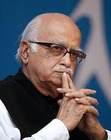L.K. Advani's Blog, page 10
May 2, 2013
BALANCE SHEET OF PRIME MINISTERS OF INDIA
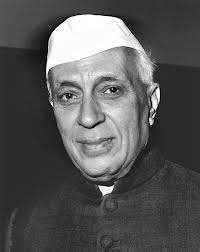 In its last 66 years of independence, India has had as many as fourteen Prime Ministers, six of whom have lasted less than one year each. Out of the remaining eight, two ruled the country for more than fifteen years each. These were Pandit Nehru (17 years) and Smt. Indira Gandhi (16 years).
In its last 66 years of independence, India has had as many as fourteen Prime Ministers, six of whom have lasted less than one year each. Out of the remaining eight, two ruled the country for more than fifteen years each. These were Pandit Nehru (17 years) and Smt. Indira Gandhi (16 years).
There have been four Prime Ministers whose tenure has lasted for five years or more. These have been Dr. Manmohan Singh (9 years), Atal Bihari Vajpayee (6 years), P.V. Narasimha Rao and Rajiv Gandhi (5 years each).
Morarji Desai ruled the country for two and a half years, and Lal Bahadur Shastri’s tenure was cut short at Tashkent in just one and a half years.
The six PMs whose tenure lasted less than a single year were V.P. Singh, H.D. Deve Gowda and I.K. Gujral (11 months each), Chandra Shekhar (8 months), Charan Singh (6 months) and Gulzari Lal Nanda (1 month).
***
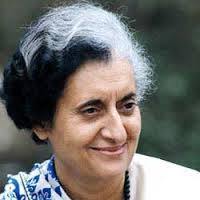 The two Prime Ministers who have ruled the country longest have naturally left the greatest impact on the minds of the people. But if a balance sheet of their plus and minus points were to be drawn up, the net result may not be very flattering.
The two Prime Ministers who have ruled the country longest have naturally left the greatest impact on the minds of the people. But if a balance sheet of their plus and minus points were to be drawn up, the net result may not be very flattering.
In case of Pt. Nehru, who was personally chosen by Mahatma Gandhi to head the first Government of India, even though an overwhelming majority of State units of the Congress Party had favoured Sardar Patel, all of Nehru’s achievements were gravely offset by the misplaced trust he reposed in China, and his Defence Minister’s criminal neglect of the nation’s defence preparedness.
As the result of Panditji’s Foreign and Defence Policies, the country suffered an ignominious defeat at the hands of China in 1962, a humiliation that can never be forgotten.
Smt. Gandhi’s most remarkable achievement was India’s decisive victory over Pakistan in 1971, and the creation of an independent Bangladesh.
But again, it was during Smt. Gandhi’s tenure that following the Allahabad High Court’s annulment of her election to the Lok Sabha in 1975, and the Court’s decision that Smt. Gandhi would be disqualified for six years from contesting any election, the then Congress Government imposed an outrageous Emergency on the country, suspended all Fundamental Rights, put as many as over one lakh opposition activists into jail, and practically brought Democracy to the brink of annihilation.
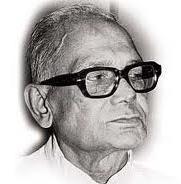 It was Loknayak Jaya Prakash Narain’s inspiring leadership of the anti-Emergency struggle, and the Indian electorate’s angry rejection of the Congress Party in the 1977 Lok Sabha elections, that saved Indian Democracy, and not only brought India back to normal times, but which also served as an all time warning to our political masters never again even to think of abusing the constitutional provisions relating to Emergency, to protect and promote their narrow partisan interests.
It was Loknayak Jaya Prakash Narain’s inspiring leadership of the anti-Emergency struggle, and the Indian electorate’s angry rejection of the Congress Party in the 1977 Lok Sabha elections, that saved Indian Democracy, and not only brought India back to normal times, but which also served as an all time warning to our political masters never again even to think of abusing the constitutional provisions relating to Emergency, to protect and promote their narrow partisan interests.
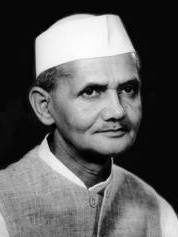
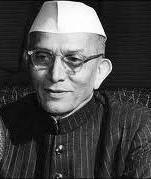
In sharp contrast to these two long lasting PMs the terms of office of Shastri and Desai were very brief. But their integrity, uprightness, and conscientious conduct left a deep impression on the people, and have earned for these two Prime Ministers abiding respect among the masses.
It was in 1951, that Dr. Syama Prasad Mookerji founded the Bharatiya Jana Sangh. Dr. Mookerji’s personality, and the policies and programmes of the new party he had launched, attracted hundreds of patriotic youths who had had their basic grounding in the RSS. Prominent among them were Pandit Deendayal Upadhyaya, Nanaji Deshmukh, Atal Bihari Vajpayee, Kushabhau Thakre, Sunder Singh Bhandari, Jagannath Rao Joshi, P. Parameshwaran, Dr. Baldev Prakash and K.R. Malkani.
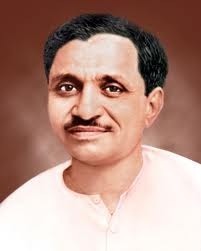
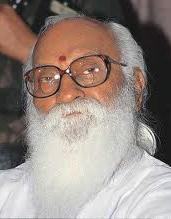
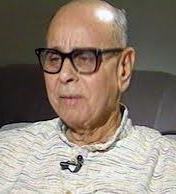
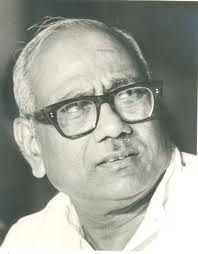
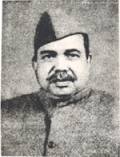
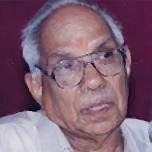
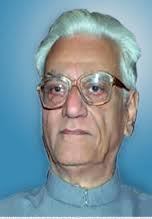
My own political life also commenced in 1951. So, I have had the privilege of participating in all the General Elections held in India since the first one of 1952, either as a campaigner or as a candidate.
I deem it a singular good fortune for myself to have worked closely with Deendayalji, the principal ideologue of our party, with Atalji, the tallest leader our party has produced, and Nanaji Deshmukh, who demonstrated to all of us how political activism can be fruitfully synthesized with constructive projects among the rural masses.
Out of the four Prime Ministers who have served for five years or more, Dr. Manmohan Singh has been in office for nine years now. If the Lok Sabha polls take place as scheduled, that is in 2014, he would have completed ten years as Prime Minister. For a person outside the Nehru family that would indeed be a unique distinction. But an even more unique, though dubious distinction would be that in free India’s political history, he would be the only Prime Minster to occupy this exalted office without ever being elected to the Lok Sabha!
Also, I cannot forget that when in 2009, I had described Dr. Singh as the weakest Prime Minister the country has had some of my own colleagues felt that I was being too severe. But I still hold that it is this attribute of his – weakness - that makes him so subservient to 10, Janpath, and thus unable to avail of the authority innate in this office of Prime Ministership.
Name
Tenure
Party
August 15, 1947 - May 27, 1964
Congress
May 27, 1964 - June 9, 1964
Congress
June 9, 1964 - January 11, 1966
Congress
January 11, 1966 - January 24, 1966
Congress
January 24, 1966 - March 24, 1977
Congress
March 24, 1977 - July 28, 1979
Janata Party
July 28, 1979 - January 14, 1980
Janata Party
January 14, 1980 - October 31, 1984
Congress (I)
October 31, 1984 - December 2, 1989
Congress (I)
December 2, 1989 - November 10, 1990
Janata Dal
November 10, 1990 - June 21, 1991
Janata Dal (S)
June 21, 1991- May 16, 1996
Congress (I)
May 16, 1996 - June 1, 1996
BJP
June 1, 1996 - April 21, 1997
Janata Dal
April 21, 1997 - March 19, 1998
Janata Dal
March 19, 1998 - May 22, 2004
BJP
May 22, 2004 - till date
INC
Again, it is precisely because of this shortcoming of Dr. Singh that history may well record that while personally he may be upright, the Government over which he has presided for a decade has been the most corrupt in Free India. And this would be not just on the basis of media reports, but would be sustained by several judicial verdicts and numerous reports of the Comptroller and Auditor General.
As I have stated earlier in this blog I consider myself extremely fortunate to have been a close colleague of Atalji throughout my political career. I am sure also that if any political analyst were to dispassionately evaluate Atalji’s six year regime, he would readily concede that the NDA regime from 1998 to 2004 was replete with achievements, and there was practically nothing that can be called negative. To sum up the highlights of the period, one can list the following:
1. Within months of becoming PM, India became a nuclear weapons power.
2. In the economic field, this government concentrated on infrastructure – highways, rural roads, irrigation, power.
3. Made India a super power in computer software.
4. Despite U.S.’s economic sanctions being applied against us, despite the devastating Kutch earthquake, the worst in independent India, Atalji successfully kept inflation in check for the six years of NDA rule.
5. The six years regime was a model of good governance, development and coalition dharma.
6. There was not even a whisper of corruption against the government.
7. Foundations were laid for interlinking of rivers, an ambitious project meticulously worked out by a Task Force for which a cabinet minister was fully spared.
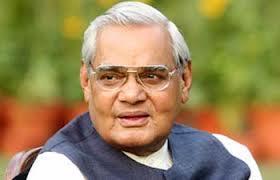
What I regarded Atalji’s most conspicuous trait was that even with such cardinal achievements to his credit I never sensed in him even a trace of ego or arrogance! It is therefore that while talking about the balance sheet of all Prime Ministers since 1947 I myself can say that he was by far the most outstanding of all !
L.K. Advani
New Delhi
2 May, 2013

April 24, 2013
कालेधन के मुद्दे पर स्विस बैंकों में गहराया संकट
इसी महीने में मैंने एक ब्लॉग लिखा था, जिसका शीर्षक था ”कालेधन पर श्वेत पत्र के बावजूद एक पैसा भी वापस नहीं आया।”
इस ब्लॉग में बताया गया था कि कैसे भाजपा द्वारा कालेधन के विरुध्द चलाए गए ठोस अभियान ने यूपीए सरकार को इस मुद्दे पर श्वेत पत्र प्रस्तुत करने को बाध्य किया। श्वेत पत्र में इसको स्वीकारा गया है कि भारत की ”समावेशी विकास रणनीति की सफलता मुख्य रुप से हमारे समाज से भ्रष्टचार की बुराई के खात्मे और काले धन को जड़ से उखाड़ फेंकने की क्षमता पर निर्भर करती है।”
भाजपा को इसका खेद है कि श्वेत पत्र पर कार्रवाई बिल्कुल नहीं की गई है। भ्रष्टाचार और कालाधन भारत की राजनीति और शासन को, विशेष रुप से पिछले नौ वर्षों से लगातार कमजोर कर रहे हैं।
 इस मुद्दे पर भारत के उदासीन रवैये की तुलना में रिपोर्टें आ रही हैं कि कुछ शक्तिशाली पश्चिमी देशों द्वारा स्विस बैंकों के गोपनीय कानूनों के विरुध्द छेड़े गए विश्वव्यापी अभियान से स्विट्जरलैण्ड के बैंकिग सेक्टर में वास्तव में संकट खड़ा हो गया है। अंतरराष्ट्रीय समाचार एजेंसी रायटर ने हाल ही में स्विट्जरलैण्ड में अपनी ब्यूरो चीफ एम्मा थामेसन का एक लेख प्रसारित किया है जिसका शीर्षक है: बैटल फॉर दि स्विस सोल। इस लेख का मूल भाव इन शब्दों में वर्णित किया गया है:
इस मुद्दे पर भारत के उदासीन रवैये की तुलना में रिपोर्टें आ रही हैं कि कुछ शक्तिशाली पश्चिमी देशों द्वारा स्विस बैंकों के गोपनीय कानूनों के विरुध्द छेड़े गए विश्वव्यापी अभियान से स्विट्जरलैण्ड के बैंकिग सेक्टर में वास्तव में संकट खड़ा हो गया है। अंतरराष्ट्रीय समाचार एजेंसी रायटर ने हाल ही में स्विट्जरलैण्ड में अपनी ब्यूरो चीफ एम्मा थामेसन का एक लेख प्रसारित किया है जिसका शीर्षक है: बैटल फॉर दि स्विस सोल। इस लेख का मूल भाव इन शब्दों में वर्णित किया गया है:
”आज भी, कुछ स्विस नागरिक इस तथ्य पर बहस करना पसन्द करेंगे कि देश की अधिकांश समृध्दि, बैंकरों द्वारा विदेशी कर वंचकों की सहायता करने से आई है।”
इस लेख की शुरुआत 1999 में जेम्स बांड की फिल्म ”दि वर्ल्ड इज नॉट इनफ” से होती है, जिसमें बांड पूछता है” यदि आप स्विस बैंकर पर भरोसा नहीं कर सकते तो किस दुनिया में हो?”
इस लेख की सुविज्ञ लेखक एम्मा जेम्स बांड के इस प्रश्न का उत्तर यूं देती हैं:
”यह इस प्रकार है: अमेरिका, फ्रांस और जर्मनी जैसे देशों के दबाव में स्विस बैंक अपनी गोपनीयता छोड़ रहे हैं, कुछ केसों में अपने खाता धारकों के नाम विदेशी कर प्राधिकरणों को दे रहे हैं। आर्थिक सहयोग और विकास संगठन (Organisation for Economic Cooperation and Development-OECD½ द्वारा काली सूची में डाले जाने से बचने के लिए स्विस सरकार टैक्स धोखाधड़ी करने वालों की तलाश करने वाले विदेशी प्राधिकरणों के साथ सूचनाएं साझा करने पर सहमत हो गई है।”
एम्मा अपने लेख में लिखती हैं:
”स्विस बैंक काफी समय से उस अलिखित संहिता का पालन करते हैं जिसका डॉक्टर या पादरी करते हैं। बैंकर्स सार्वजनिक रुप से अपने ग्राहक को नहीं पहचानते, इस भय से कि इससे उनके खाताधारक होने का राज खुल जाएगा: अक्सर वे एक नाम का बिजनेस कार्ड रखते हैं बजाय बैंक या सम्पर्क विवरण के; और कम से कम 1990 के दशक तक वे कभी भी विदेशों में प्रचारित नहीं करते थे।…..”
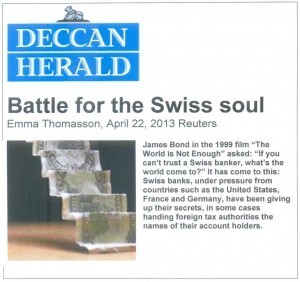 दक्षिणपंथी स्विस पीपुल्स पार्टी बैंकिंग गोपनीय कानूनों के शिथिल होने को एक प्रकार का आत्मसमर्पण मानती है। पार्टी का मानना है कि यह आत्मसमर्पण ”न केवल ग्राहकों के साथ अपितु मूलभूत स्विस मूल्यों के साथ भी विश्वासघात है।”
दक्षिणपंथी स्विस पीपुल्स पार्टी बैंकिंग गोपनीय कानूनों के शिथिल होने को एक प्रकार का आत्मसमर्पण मानती है। पार्टी का मानना है कि यह आत्मसमर्पण ”न केवल ग्राहकों के साथ अपितु मूलभूत स्विस मूल्यों के साथ भी विश्वासघात है।”
एक बैंकर और स्विस पीपुल्स पार्टी के राजनीतिज्ञ थामस मट्टेर (Thomas Matter) इसे और साफ तीखे रूप से लिखते हैं : ”स्विस लोग स्वतंत्रता प्रेमी हैं; देश सदैव नागरिकों के लिए रहा है न कि इसका उल्टा।”
यद्यपि, वाशिंगटन, पेरिस और बर्लिन के भारी दवाब के चलते सन् 2009 में, देश का सबसे बड़ा बैंक यूबीएस चार हजार से अधिक अमेरिकी ग्राहकों के नाम अमेरिका को देने पर सहमत हुआ, 780 मिलियन अमेरिकी डॉलर का दण्ड इसलिए दिया कि उसने अमेरिकीयों की टैक्स से बचने में सहायता की थी। दो अन्य प्रमुख बैंकों -क्रेडिट सुइसे (Credit Suisse) और जूलियस बेअर (Julius Baer) ने भी अमेरिका में व्यवसाय में लगे अपने कर्मचारियों सम्बन्धी सूचनाएं वाशिंगटन को सौंपी जबकि क्रेडिट सुइसे ने भारी जुर्माने के लिए अपने खातों में प्रावधान किया।
हालांकि ज्यूरिख और जेनेवा, स्विटजरलैण्ड के मुख्य आर्थिक केन्द्र हैं, देश के बैंकिंग उद्योग की जड़ें संक्ट गालन (St. Gallen) शहर में हैं। हाल ही तक संक्ट गालन, स्विटजरलैण्ड के प्राचीनतम निजी बैंक बेगेलिन एण्ड कम्पनी (Wegelin & Co½ का शहर था। सन् 2012 में अमेरिका के जस्टिस विभाग ने इसकी आलोचना करते हुए कहा कि इसके विदेशी खातों में अमीर अमेरिकीयों द्वारा टैक्स से बचाए गए कम से कम 1.2 बिलियन डालर छुपे हैं। इस वर्ष जनवरी में बैंक को दोषी ठहराया गया। बेगेलिन के अधिकारियों जिन्होंने पहले ही अपने सभी गैर-अमेरिकी व्यवसाय को एक दूसरे बैंक रेफेइसियन (Raifeissen) को बेच दिए थे, ने घोषित किया है कि जो कुछ उनके बैंक में बचा है, वे उसे भी समेट रहे हैं।
इस समूची स्विस बहस में ‘दोषी‘ - एक महत्वपूर्ण निर्णायक विन्दु है क्योंकि बगैर कुछ कहे, बेगेलिन के अधिकारियों ने अपने साथी और बैंकों को साफ-साफ संदेश दे दिया है। एक प्रमुख रूढ़िवादी राजनीतिज्ञ क्रिस्टिफ डारबेले (Christoph Darbellay) ने सार्वजनिक रूप से बेगेलिन अधिकारियों को ‘देशद्रोही‘ कहा है। यू.बी.एस. के चीफ एग्जिक्यूटिव सेरगिओ इरमोट्टी (Sergio Ermotti) ने कहा: जैसाकि एक दशक या उससे पहले तक जिस बैंक गोपनीयता को हम जानते थे, वह अब समाप्त हो गई है। संक्ट गालन बैंकर जिन्होंने बेगेलिन के गैर-अमेरिकी व्यवसाय को खरीदा है, कहते हैं : ”हम वास्तव में संक्रमणकालीन प्रक्रिया में हैं।”
रेफेसियन के मालिक पेइरिन विन्सेंज (Pierin Vincenz) ने रूढ़िवादियों से अलग अपनी बात रखते हुए कहा कि स्विटजरलैण्ड को अंतत: पारदर्शिता और वैश्विक मापदण्डों को अपनाना होगा। अधिकाधिक बैंक और बध्दिजीवीगण इस मत के साथ खड़े नजर आ रहे हैं। कालेधन के विरूध्द वैश्विक युध्द में यह बड़ा सहायक होगा। यही आशा की जा सकती है कि भारत इन घटनाओं का पूरा-पूरा लाभ उठाएगा।
लालकृष्ण आडवाणी
नई दिल्ली
24 अप्रैल, 2013

April 23, 2013
BLACK MONEY ISSUE PRECIPITATES A CRISIS AMONG SWISS BANKERS
Earlier this month I had written a blog captioned “White Paper on Black Money notwithstanding, not a single paisa has been recovered”
This blog had highlighted how the BJP’s sustained campaign against black money had forced the UPA Government to present a White Paper on the issue. This White Paper rightly affirmed that success of the country’s “inclusive development strategy critically depends on the capacity of our society to root out the evil of corruption and black money from its very foundations.”
The BJP regrets that there has been absolutely no follow up to the White Paper. Both corruption and black money continue to corrode India’s polity and governance, more particularly in the last nine years.
 In sharp contrast to India’s indifference to this matter, there are reports about a virtual crisis having been precipitated in the banking sector of Switzerland because of the global campaign against banking secrecy laws initiated by some powerful western countries. The international news agency Reuters has recently circulated an article written by its Bureau Chief in Switzerland Emma Thomasson bearing the caption: Battle for the Swiss Soul. The thrust of the article is summed up in the words
In sharp contrast to India’s indifference to this matter, there are reports about a virtual crisis having been precipitated in the banking sector of Switzerland because of the global campaign against banking secrecy laws initiated by some powerful western countries. The international news agency Reuters has recently circulated an article written by its Bureau Chief in Switzerland Emma Thomasson bearing the caption: Battle for the Swiss Soul. The thrust of the article is summed up in the words
“Even today, few Swiss would like to discuss the fact that much of the country’s prosperity was built on the bankers helping foreigners evade taxes.”
This article opens with a quote from a James Bond film of 1999 “The World is Not Enough”, where Bond asks “If you can’t trust a Swiss banker, what’s the world coming to?”
Emma, the learned writer of the article goes on to reply to James Bond’s query thus,
It has come to this : Swiss banks, under pressure from countries such as the United States, France and Germany, have been giving up their secrets, in some cases handing foreign tax authorities the names of their account holders. To avoid being blacklisted by the Organisation for Economic Cooperation and Development (OECD), the Swiss Government has agreed to share more information with foreign authorities hunting tax cheats.
Emma writes in her article:
“Swiss bankers have long adhered to an unwritten code similar to that observed by doctors or priests. Bankers do not acknowledge clients in public for fear of exposing them as account holders; they often carry business cards with just a name, rather than bank or contact details; and, at least until the 1990s, they never advertised abroad..”
 The right wing Swiss People’s Party sees in the loosening up of banking secrecy laws a kind of surrender. This surrender, the party holds, is a “betrayal not just of the clients but of core Swiss values”. Thomas Matter, a banker and politician of the Swiss People’s Party put it very bluntly: “Swiss people love freedom; the State was always for the citizen and not the other way round”.
The right wing Swiss People’s Party sees in the loosening up of banking secrecy laws a kind of surrender. This surrender, the party holds, is a “betrayal not just of the clients but of core Swiss values”. Thomas Matter, a banker and politician of the Swiss People’s Party put it very bluntly: “Swiss people love freedom; the State was always for the citizen and not the other way round”.
However, Swiss banks have lately been under such immense pressure from Washington, Paris and Berlin that in 2009, UBS, the country’s biggest bank, agreed to give the United States names of more than 4000 American clients and besides, pay a $ 780 million fine to avoid prosecution for helping Americans evade taxes. Two other major banks, Credit Suisse and Julius Baer also have handed over to Washington information on their employees engaged in U.S. business, while Credit Suisse has made provisions in its accounts for hefty fines.
While Zurich and Geneva are the main financial centres of Switzerland, the country’s close-knit banking fraternity has had its roots in the ancient hermitage city of St Gallen. Until recently St Gallen was home to Wegelin & Co., Switzerland’s oldest private bank. In 2012, the U.S. Justice Department indicted this Wegelin bank on charges that it enabled wealthy Americans to evade taxes on at least $ 1.2 billion hidden in offshore accounts. In January this year, the Bank pleaded guilty. Wegelin executives who had already sold all their non-U.S. business to a fellow bank Raifeissen, announced that they would wind up what remained of their Bank.
The guilty plea was a crucial turning point in this entire Swiss debate because without saying so, Wegelin’s executives had by implication incriminated all their fellow bankers as well. A prominent conservative politician Christoph Darbellay publicly called Wegelin executives “traitors”.
Sergio Ermotti, Chief Executive of U.B.S. however said: Bank secrecy, as we knew it till a decade or so back, is now over. The St Gallen banker who bought Wegelin’s non-U.S. business also said: “We are in a real transformation process.”
Raifeisen boss, Pierin Vincenz has broken off with the conservatives, and said that Switzerland would have ultimately to accept transparency and comply with global standards. More and more bankers and academicians are veering round to this view. In the global war against black money, this would be a great help. One can only hope that India takes full advantage of these developments.
L.K. ADVANI
New Delhi
April 24, 2013

April 12, 2013
काले धन पर श्वेत पत्र के बावजूद एक पैसा भी वापस नहीं आया
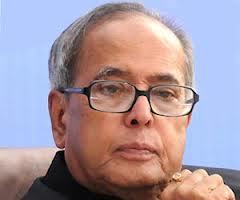 मई, 2012 में तत्कालीन वित्त मंत्री श्री प्रणव मुखर्जी ने काले धन पर एक श्वेत पत्र (White Paper) संसद में प्रस्तुत किया। इस श्वेत पत्र में यूपीए सरकार ने वायदा किया कि देश में काले धन के प्रचलन को नियंत्रित किया जाएगा, विदेशों के टैक्स हेवन्स में इसके अवैध हस्तांतरण को रोकने के साथ-साथ हमारी इस अवैध धनराशि को भारत वापस लाने के प्रभावी उपाय सुनिश्चित किए जाएंगे।
मई, 2012 में तत्कालीन वित्त मंत्री श्री प्रणव मुखर्जी ने काले धन पर एक श्वेत पत्र (White Paper) संसद में प्रस्तुत किया। इस श्वेत पत्र में यूपीए सरकार ने वायदा किया कि देश में काले धन के प्रचलन को नियंत्रित किया जाएगा, विदेशों के टैक्स हेवन्स में इसके अवैध हस्तांतरण को रोकने के साथ-साथ हमारी इस अवैध धनराशि को भारत वापस लाने के प्रभावी उपाय सुनिश्चित किए जाएंगे।
मई, 2013 इस महत्वपूर्ण दस्तावेज के प्रस्तुत करने की पहली वर्षगांठ है। अत: सर्वप्रथम यह जानना समीचीन होगा कि इस श्वेत पत्र को सरकार को क्यों लाना पड़ा और आज तक इस पर कार्रवाई के रूप में क्या कदम उठाए गए हैं।
पांच वर्ष पहले से, भाजपा लगातार काले धन के मुद्दे को मुखरित करती आ रही है। जब सन् 2008 में पहली बार इसे उठाया गया तब कांग्रेस पार्टी के प्रवक्ताओं ने इसकी खिल्ली उड़ाई थी। हालांकि 6 अप्रैल, 2008 को मैंने प्रधानमंत्री डॉ0 मनमोहन सिंह को सम्बोधित अपने पत्र मे मैंनें लिखा था:
हाल ही में, जर्मन सरकार ने अपने देश में टैक्स चोरी करने वालों के विरुध्द एक व्यापक जांच अभियान शुरु किया है, और इस प्रक्रिया में जर्मन गुप्तचर एजेंसियों को बताते हैं कि लीशेंस्टाइन के एलटीजी बैंक से उसके 1400 से अधिक ग्राहकों की गोपनीय जानकारी मिली है। इनमें से 600 जर्मनी के हैं और शेष अन्य देशों से सम्बंधित हैं।
इन रहस्योद्धाटनों से पहले ही डायचे पोस्ट-पूर्व जर्मनी मेल सर्विस-दुनिया में एक बड़ी लॉजिस्टिक कम्पनी-के प्रमुख का त्यागपत्र हो चुका है।
जर्मन वित मंत्रालय ने बताते हैं कि सार्वजनिक रुप से घोषणा की है कि वह किसी भी सरकार को यदि वे चाहती हैं तो बगैर किसी शुल्क के जानकारी उसे देने को तैयार हैं।
फिनलैण्ड, नार्वे और स्वीडन जैसे कुछ यूरोपीय देशों ने यह जानकारी पाने में पहले ही अपनी रुचि दिखाई है।
इन घटनाक्रमों के साथ-साथ, ऐसी भी रिपोर्ट आ रहीं हैं कि स्विटज़रलैण्ड पर यह दबाव भी बन रहा है कि वह टैक्स से चुरा कर उनके बैंको में जमा कालेधन को एक अपराध माना जाए और वह ऐसे धन का पता लगाने के लिए अन्य देशों से सहयोग करने हेतु अपने आंतरिक नियमों को बदले।
मैं मानता हूं कि भारत सरकार अपनी उपयुक्त एजेंसियों के माध्यम से जर्मन सरकार से अनुरोध करे वह एलटीजी के ग्राहकों का डाटा हमें बताए। हमारी सरकार को यूरोपीय सरकारों द्वारा स्विट्ज़रलैण्ड तथा अन्य टैक्स हेवन्स विशेषकर अन्य देशों से सम्बंधित जमा राशि की बैंकिग पध्दति में और ज्यादा पारदर्शिता लाने के संभावित आगामी कदमों को समर्थन देना चाहिए।
यदि हम जर्मनी से एलटीजी ग्रुप के ग्राहकों का सम्बंधित डाटा मांगते हैं तो यह हमारी उस स्थिति को पुन: मजबूत करेगा कि हम उन राष्ट्रों के समुदाय के जिम्मेदार सदस्य हैं जो वित्तीय प्रामाणिकता और पारदर्शी नियमों के पक्षधर हैं। यह भविष्य में, इन टैक्स हेवन्स की कार्यप्रणाली से कुछ अवांछनीय पहलुओं को समाप्त कर वैश्विक वित्तिय प्रणाली को स्वच्छ बनाने में हमारी सहभागिता का मार्ग प्रशस्त करेगा।
सम्भवत: प्रधानमंत्री के निर्देश पर वित्त मंत्री श्री चिदम्बरम ने मई, 2008 में इसके उत्तर में लिखा कि उनकी सरकार इस मुद्दे पर जर्मनी के टैक्स ऑफिस से सम्पर्क कर प्रयास कर रही है।
मार्च, 2010 में मैंने इस विषय पर लिखे अपने ब्लॉग में लीशेंस्टाइन के एलटीजी बैंक प्रकरण की याद दिलाते हुए सरकार से आग्रह किया था कि वह औपचारिक रुप से काले धन पर एक विस्तृत श्वेत पत्र प्रकाशित करे।
इस बीच भाजपा ने इस विषय के अध्ययन हेतु एक चार सदस्यीय टास्क फोर्स (कार्यदल) का गठन किया। विभिन्न स्रोतों से प्राप्त सामग्री का अध्ययन करने के पश्चात् यह टास्क फोर्स इस निष्कर्ष पर पहुंची कि विदेशों में अवैध ढंग से जमा भारतीयों का धन अनुमानतया 25 लाख करोड़ से 70 लाख करोड़ रूपये के बीच होगा।
जब तक पश्चिमी प्रभुत्व वाली विश्व अर्थव्यवस्था अमेरिका और अन्य यूरोपीय देशों के लिए ठीक ठाक चल रही थी जब तक समूचे विश्व को लगता था कि इन टैक्स हेवन्स के बैंकिग गोपनीयता सम्बन्धी प्रावधानों से कोई दिक्कत नहीं है। उस समय ऐसा महसूस किया जाता था कि इन देशों के कानूनों के बारे में कुछ नहीं किया जा सकता। लेकिन विश्व अर्थव्यवस्था के संकट से न केवल राष्ट्रपति ओबामा अपितु ब्रिटेन, फ्रांस और जर्मनी जैसे अनेक यूरोपीय देशों के रुख में बदलाव आया और उन्होंने एकजुट होकर इन देशों के बैंकिग गोपनीय कानूनों में बदलाव के लिए दृढ़ प्रयास किए।
सन् 2009 में वाशिंगटन ने यूबीएस जैसे स्विट्जरलैंड के बड़े बैंक को उन 4450 अमेरिकी ग्राहकों के नाम उद्धाटित करने पर बाध्य किया, जिन पर स्विट्ज़रलैंड में सम्पत्ति छिपाने का संदेह था।
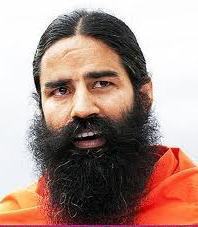 सन् 2009 के लोकसभाई चुनावों में भाजपा ने काले धन को चुनावी मुद्दा बनाया। स्वामी रामदेव जैसे संन्यासियों ने अपने प्रवचनों में लगातार इसे प्रचारित किया। फाइनेंसियल टाइम्स में ”इंडियंस कर्स ऑफ ब्लैकमनी” शीर्षक से प्रकाशित लेख के लेखक रेमण्ड बेकर (निदेशक, ग्लोबल फाइनेंशियल इंटेग्रिटी) ने लिखा है कि: ”भारत ने दिखा दिया है कि यह मुद्दा मतदाताओं को छूता है। अन्य विकासशील लोकतंत्र के राजनीतिज्ञों को इसे ध्यान में रखना समझदारी होगी।”
सन् 2009 के लोकसभाई चुनावों में भाजपा ने काले धन को चुनावी मुद्दा बनाया। स्वामी रामदेव जैसे संन्यासियों ने अपने प्रवचनों में लगातार इसे प्रचारित किया। फाइनेंसियल टाइम्स में ”इंडियंस कर्स ऑफ ब्लैकमनी” शीर्षक से प्रकाशित लेख के लेखक रेमण्ड बेकर (निदेशक, ग्लोबल फाइनेंशियल इंटेग्रिटी) ने लिखा है कि: ”भारत ने दिखा दिया है कि यह मुद्दा मतदाताओं को छूता है। अन्य विकासशील लोकतंत्र के राजनीतिज्ञों को इसे ध्यान में रखना समझदारी होगी।”
अमेरिका और अन्य पश्चिमी देशों में आर्थिक संकट ने इन देशों को इस तथ्य के प्रति सचेत किया कि भ्रष्टाचार, काला धन इत्यादि न केवल राष्ट्र विशेष की समस्या है अपितु यह दुनिया के लोकतंत्र, कानून के शासन और सुशासन के लिए भी चुनौती है। इसलिए सन् 2004 में संयुक्त राष्ट्र के ड्रग्स और क्राइम कार्यालय (United Nations Office on Drugs and Crime) द्वारा भ्रष्टाचार के विरुध्द एक विस्तृत कन्वेंशन औपचारिक रुप से अंगीकृत किया गया था। 56 पृष्ठीय दस्तावेज में संयुक्त राष्ट्र संघ के तत्कालीन महासचिव श्री कोफी अन्नान की सशक्त प्रस्तावना थी, जो कहती है:
भ्रष्टाचार एक घातक प्लेग है जिसके समाज पर बहुव्यापी क्षयकारी प्रभाव पड़ते हैं:
इससे लोकतंत्र और कानून का शासन खोखला होता है।
मानवाधिकारों का हनन होता है।
बाजार का विकृतिकरण।
जीवन की गुणवत्ता का क्षय होता है, और
संगठित अपराध, आतंकवाद और मानव सुरक्षा के प्रति खतरे बढ़ते हैं।
भ्रष्टाचार के विरुध्द इस कन्वेंशन के अनुच्छेद 67 के मुताबिक संयुक्त राष्ट्र के सभी सदस्य देश दिसम्बर, 2005 तक इसे स्वीकृति देंगे, तत्पश्चात् शीघ्र ही सम्बंधित देश इसे पुष्ट करेंगे और स्वीकृति पत्र संयुक्त राष्ट्र के महासचिव के पास जमा कराएंगे।
सन् 2010 में यूपीए सरकार ने इस मुद्दे को औपचारिक रुप से ध्यान में लेते हुए उस वर्ष के संसद के बजट सत्र में होने वाले राष्ट्रपति के पारम्परिक अभिभाषण में इसका उल्लेख करते हुए कहा ”भारत कर सम्बंधी सूचना के आदान-प्रदान को सुगम बनाने तथा कर चोरी की सुविधा देने वाले क्षेत्रों के खिलाफ कार्रवाई करने सम्बन्धी वैश्विक प्रयासों में सक्रिय भागीदारी निभा रहा है।”
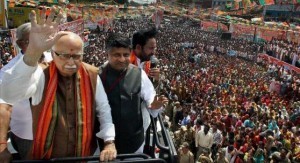
सन् 2011 के अंतिम महीनों में भाजपा द्वारा आयोजित जन चेतना यात्रा ने तीन मुद्दों पर जोर दिया: महंगाई, भ्रष्टाचार और काला धन। सन् 2008 के कामॅनवेल्थ खेलों, भ्रष्टाचार और मंहगाई मीडिया के साथ-साथ संसद में सभी राजनीतिक चर्चाओं में प्रमुख स्थान पर रहे, परन्तु मैंने पाया कि यात्रा के दौरान जब भी मैं सभाओं को सम्बोधित करता था तो काले धन के मुद्दे पर जनता की प्रतिक्रिया बहुत ज्यादा अनुकूल रहता था।
सन् 2011 की जनचेतना यात्रा मेरी अब तक की यात्राओं की कड़ी में ताजा यात्रा थी। चालीस दिनों तक यह चली। देश के प्रत्येक प्रदेश और सभी संघ शासित प्रदेशों में मुझे जाने का अवसर मिला। आम धारणा है कि 1990 की मेरी पहली यात्रा-सोमनाथ से अयोध्या तक की, जो समस्तीपुर में रुक गई थी-को सर्वाधिक समर्थन मिला। अक्सर यह भी कहा जाता है कि इतना उत्साह इसलिए उमड़ा कि उसका मुद्दा मुख्य रुप से धार्मिक यानी राम मंदिर था। लेकिन मैं यहां उल्लेख करना चाहूंगा कि मेरी दो यात्राएं-1997 की स्वर्ण जयंती रथ यात्रा और 2011 की जन चेतना यात्रा को अभी तक सर्वाधिक समर्थन मिला है। ये दोनों सुशासन और लोगों की आर्थिक भलाई से जुड़ी थीं!
16 मई, 2012 को संसद में कालेधन पर प्रस्तुत श्वेत पत्र के आमुख में वित्त मंत्री प्रणव मुखर्जी ने स्वीकार किया कि 2011 में ”भ्रष्टाचार और कालेधन के मुद्दों पर जनता की आवाज सामने आई।”
अपनी प्रस्तावना में श्री प्रणव मुखर्जी ने यह भी कहा:
”मुझे अत्यन्त प्रसन्नता होती यदि मैं उन तीनों प्रमुख संस्थानों जिन्हें काले धन की मात्रा और आकार पता लगाने के लिए कहा गया है, की रिपोर्टों के निष्कर्षों को भी इस में शामिल कर पाता। ये रिपोटर् इस वर्ष के अंत तक मिलने की उम्मीद है। फिर भी मैंने इस दस्तावेज को इसलिए रखा है कि संसद में इस हेतु आश्वासन दिया गया था।”
प्रणव दा ने इस श्वेत पत्र को इसलिए प्रस्तुत किया कि भाजपा ने इसकी मांग की थी, उन्होंने स्वीकारा:
”इसमें कोई संदेह नहीं कि हमारे जीवन के सामाजिक, आर्थिक और राजनीतिक क्षेत्र में काले धन के प्रस्फुटीकरण का असर शासन के संस्थानों और देश में जननीति के संचालन पर पड़ता है। प्रणाली में शासन का अभाव और भ्रष्टाचार गरीबों को ज्यादा प्रभावित करता है। समावेशी विकास रणनीति की सफलता मुख्य रुप से हमारे समाज से भ्रष्टचार की बुराई के खात्मे और काले धन को जड़ से उखाड़ फेंकने की क्षमता पर निर्भर करती है।”
मुझे दु:ख है कि श्वेत पत्र पर कार्रवाई निराश करने वाली है।
उन तीन प्रमुख संस्थानों ने जिन्हें कालेधन की मात्रा पर रिपोर्ट देनी थी, ने अभी तक अपनी रिपोटर् नहीं सौपी हैं। न केवल अमेरिका, जर्मनी जैसे अधिक शक्तिशाली राष्ट्रों अपितु नाइजीरिया, पेरु और फिलीपीन्स जैसे छोटे देश भी टैक्स हेवन्स से अपनी अवैध लुटी सम्पत्ति को वापस पाने में सफल रहे हैं। दूसरी तरफ, भारत में हमें कुछ रिपोटर् देखने को मिली हैं जिनमें वे नाम हैं जिन पर स्विस बैंकों या ऐसे अन्य टैक्स हेवन्स में खाते रखने का संदेह है। लेकिन यह सुनने को नहीं मिला है कि अवैध ढंग से विदेशों में ले जाए धन में से एक पैसा भी वापस देश में लाया जा सका है।
श्री प्रणव मुखर्जी जो श्वेत पत्र प्रस्तुत करने के समय की तुलना में आज, ज्यादा निर्णायक भूमिका में हैं, से मैं अनुरोध करता हूं कि वे श्वेतपत्र में जनता से किए गए वायदे को सरकार द्वारा अक्षरश: पूरा करवाएं।
लालकृष्ण आडवाणी
नई दिल्ली
10 अप्रैल, 2013
टेलपीस (पश्च्यलेख)
अब्राहम लिंकन 1846 में कांग्रेस के लिए निर्वाचित हुए।
जॉन एफ केनेडी 1946 में कांग्रेस के लिए निर्वाचित हुए।

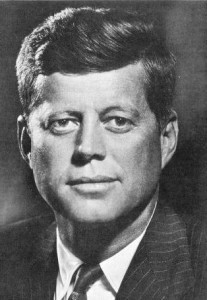
अब्राहम लिंकन 1860 में राष्ट्रपति चुने गए।
जान एफ केनेडी 1960 में राष्ट्रपति चुने गए।
दोनों ही विशेष रुप से नागरिक अधिकारों के प्रति संवेदनशील थे।
व्हाइट हाउस में रहते हुए ही दोनों की पत्नियों को अपने बच्चे गवाने पड़े।
दोनों राष्ट्रपतियों को शुक्रवार को ही गोली लगी।
दोनों राष्ट्रपतियों को गोली सिर में लगी।
दोनों के हत्यारे सदर्नर (दक्षिण अमेरिकावासी) थे।
दानों के उत्तराधिकारी जॉनसन नाम के सदर्नर बने।
लिंकन का उत्तराधिकारी एण्ड्रयू जॉनसन 1808 में जन्मा।
केनेडी का उत्तराधिकारी लिंडन जॉनसन 1908 में जन्मा।
लिंकन का हत्यारा जॉन वाइक्स बूथ 1839 में जन्मा था।
केनेडी का हत्यारा ली हार्वे ऑसवाल्ड 1939 में जन्मा था।
दोनों हत्यारे उनके तीन नामों से जाने जाते थे
दोनो के नामों में पंद्रह अक्षर समाहित थे।
लिंकन पर गोली ‘फोर्ड‘ नाम के थियेटर में चलाई गई।
केनेडी पर गोली ‘लिंकन‘ नाम की कार में चली, जो ‘फोर्ड‘ द्वारा बनाई गई थी।
लिंकन पर थियेटर में गोली चलाई गई और उनका हत्यारा भागकर एक वेयर हाउस में छिपा।
केनेडी पर गोली एक वेयर हाउस से चली और उनका हत्यारा भागकर एक थियेटर में छिपा।
इस पश्च्य ने मुझे अल्बर्ट आइंस्टीन द्वारा कभी की गई
इस टिप्पणी का स्मरण करा दिया:
संयोग ईश्वर द्वारा अदृश्य रहने का एक रास्ता है।
एल.के.ए.

April 9, 2013
WHITE PAPER ON BLACK MONEY NOTWITHSTANDING, NOT A SINGLE PAISA HAS YET BEEN RECOVERED
 In May 2012, Shri Pranab Mukherjee, then Finance Minister presented to Parliament a White Paper on Black Money. In this White Paper, the UPA Government promised to curb generation of Black Money in the country, its illicit transfer to tax havens overseas and to take effective measures to secure the repatriation of all this illicit wealth of ours to India.
In May 2012, Shri Pranab Mukherjee, then Finance Minister presented to Parliament a White Paper on Black Money. In this White Paper, the UPA Government promised to curb generation of Black Money in the country, its illicit transfer to tax havens overseas and to take effective measures to secure the repatriation of all this illicit wealth of ours to India.
May, 2013 would mark the first anniversary of the presentation of this important document. It would be in place first to recall what made Government to present this White Paper, and what has been the follow up till date.
For the last five years now, the BJP has been consistently raising this issue of black money. When it was first raised in 2008, Congress Party spokesmen had ridiculed it. However, on April 6, 2008, I personally addressed a letter to Prime Minister Dr. Manmohan Singh in which I wrote :
Recently, the German Government launched a massive investigation drive against tax-evaders in their country, and, in this process, the German intelligence is reported to have procured from the LTG Bank in Liechtenstein confidential data on more than 1400 clients of this bank. Of these, 600 are Germans and the rest belong to other countries.
The revelations have already led to the resignation of the head of Deutesche Post – the former German mail service – one of the largest logistics company in the world.
The German Finance Ministry is reported to have publicly announced that it is willing to share the information with any government that wanted it without charging any fees for the information.
Some countries of Europe like Finland, Norway and Sweden have already shown interest in getting this data.
Along with this development, there are also reports that pressure is building on Switzerland to treat black money entrusted to its banks from tax evasion to be treated as a crime and modify its internal regulations to cooperate with other countries in tracking such funds.
I think the Government of India, through its appropriate agencies, should request the German Government to share the data of the clients of LTG. Our Government should also be proactive in supporting the possible future steps to be initiated by European governments in bringing in more transparency in banking system of Switzerland and other tax havens particularly related to deposits from other countries.
If we ask for the data from Germany regarding the clients of the LTG group it will re-enforce our position as a responsible member of the comity of nations who stand for financial integrity and transparent regulations. It will also facilitate our future participation in cleaning up the world financial system from some of the pernicious aspects of the functioning of these tax havens.
Presumably, at the instance of the Prime Minister, the Finance Minister Shri Chidambaram replied to me in May, 2008, that his government was seized of this matter and was pursuing it with the German Tax Office.
In March 2010, I wrote a blog on the matter in which I recounted this LTG Bank of Liechtenstein episode, and urged formally that Government come forth with a comprehensive White Paper on Black Money.
Meanwhile the BJP set up a 4-member Task Force to study the matter. This Task Force after studying various sources came to the conclusion that Indian wealth illegally stashed abroad may be anywhere between 25 lakh crores and 70 lakh crores.
So long as the West dominated world economy was doing well for the US and other Western nations, the entire world seemed reconciled to the banking secrecy of these tax havens. It was felt nothing could be done about the laws of these countries. But the global economic crisis made not only President Obama, but also several European countries like UK, France and Germany change their attitude, and join hands to make a determined effort to have banking secrecy laws in these countries changed.
In 2009, Washington forced the Swiss banking giant UBS to disclose the names of 4,450 American clients suspected of hiding assets in Switzerland.
 In 2009 Lok Sabha poll, the BJP made black money an election issue. Sanyasis like Swami Ramdev would invariably refer to it in their sermons. In an article published by Financial Times, under title “India’s Curse of Black Money’, Raymond Baker, director, Global Financial Integrity, wrote: ‘India has shown that this issue resonates with voters. Politicians in other developing democracies would be wise to take note’.
In 2009 Lok Sabha poll, the BJP made black money an election issue. Sanyasis like Swami Ramdev would invariably refer to it in their sermons. In an article published by Financial Times, under title “India’s Curse of Black Money’, Raymond Baker, director, Global Financial Integrity, wrote: ‘India has shown that this issue resonates with voters. Politicians in other developing democracies would be wise to take note’.
The economic crisis in U.S. and other western countries made these nations acutely conscious of the fact that corruption, black money etc. had become issues that were a problem not just for individual nations, but were a challenge for democracy, the rule of law and good governance in the whole world. Way back in 2004, therefore, the United Nations Office on Drugs and Crime adopted a comprehensive Convention against Corruption. This 56-page document carries a powerful foreword by Kofi Annan, UN Secretary General who says :
Corruption is an insidious plague that has a wide range of corrosive effects on societies.
· It undermines democracy and the rule of law,
· Leads to violation of human rights,
· Distorts markets,
· Erodes the quality of life, and
· Allows organized crime, terrorism and other threats to human security to flourish.
Article 67 of this Convention against Corruption requires all member countries of the UN to sign the convention by December 2005, have it ratified by the respective countries shortly thereafter and deposit its instrument of ratification with the secretary general of the United Nations.
In 2010 the UPA Government took formal note of the issue and in the President’s customary address to that year’s Budget Session of Parliament affirmed that “India is an active part of the global efforts to facilitate exchange of tax information and take action against tax evaders”.

The Jan Chetna Yatra organized by the BJP in the last quarter of 2011 had focused attention on three issues: Inflation, Corruption and Black Money. But since the Commonwealth Games of 2008, corruption and price rise had dominated all political discourse both in the media as well as in Parliament, I found the audiences at the meetings I addressed during this last yatra extremely responsive to all that I spoke about Black Money.
The Jan Chetna Yatra of 2011 has been my most recent yatra. It stretched over 40 days. I visited every single state of the country as also all Union Territories. The general impression has been that my first yatra of 1990 - planned from Somnath to Ayodhya, but cut short at Samastipur– had evoked the greatest response. It is also said very often that the enthusiasm aroused was because the core issue was religious, namely, the Rama Temple. But I would like to affirm here that my latest two yatras, the Swarna Jayanti Rath Yatra of 1997, and the Jan Chetna Yatra of 2011 have evoked the maximum response till date. Both these were related to good governance and economic well being of the people !
In his foreword to the White Paper on Black Money presented to Parliament on May 16, 2012, Finance Minister Pranab Mukherjee admitted that in 2011, “the public discourse on the issue of corruption and black money has come in the forefront.”
In this Introduction, Shri Pranab Mukherjee also said:
“I would have been happy if I could have included the conclusions of reports of three premier institutions that have been tasked to quantify the magnitude of black money. These reports are likely to be received by the end of this year. However I have chosen to present this document now in response to an assurance given to the Parliament”.
Pranab Da did present this White Paper as BJP had demanded and in this, very rightly affirmed :
“There is no doubt that manifestation of black money in social, economic and political space of our lives has a debilitating effect on the institutions of governance and conduct of public policy in the country. Governance failure and corruption in the system affect the poor disproportionately. The success of an inclusive development strategy critically depends on the capacity of our society to root out the evil of corruption and black money from its very foundations”.
My only regret is that the follow up of the White Paper has been disappointing.
The three premier institutions tasked to quantify the magnitude of black money have still not submitted their reports. Not only the more powerful nations like U.S., Germany etc. but even smaller countries like Nigeria, Peru and Phillipines have got back their illicitly lost wealth from the tax havens. We in India, on the other hand, have seen some reports about names who are supposed to have accounts in Swiss Banks or such other tax havens, but have not heard of even a single paisa illegally stashed abroad having been repatriated to our country.
I wish to urge Shri Pranab Mukherjee who is today in a far more exalted position than he was when he presented his White Paper to ensure that the promise made to the people in this document is fulfilled by Government both in letter and spirit.
L.K. Advani
New Delhi
10 April, 2013
TAILPIECE
Abraham Lincoln was elected to Congress in 1846
John F. Kennedy was elected to Congress in 1946


Abraham Lincoln was elected President in 1860
John F. Kennedy was elected President in 1960
Both were particularly concerned with civil rights.
Both wives lost their children while living in the White House.
Both Presidents were shot on a Friday.
Both Presidents were shot in the head.
Lincoln ’s secretary was named Kennedy.
Kennedy’s Secretary was named Lincoln.
Both were assassinated by Southerners.
Both were succeeded by Southerners named Johnson.
Andrew Johnson, who succeeded Lincoln, was born in 1808.
Lyndon Johnson, who succeeded Kennedy, was born in 1908.
John Wilkes Booth, who assassinated Lincoln, was born in 1839.
Lee Harvey Oswald, who assassinated Kennedy, was born in 1939.
Both assassins were known by their three names.
Both names are composed of fifteen letters.
Lincoln was shot at the theater named ‘Ford’.
Kennedy was shot in a car called ‘Lincoln’, made by ‘Ford’.
Lincoln was shot in a theater and his assassin ran and hid in a warehouse.
Kennedy was shot from a warehouse and his assassin ran and hid in a theater.
-
The above tailpiece reminds me of
what Albert Einstein once remarked :
Coincidence is God’s way
of remaining anonymous.
L.K.A.

April 2, 2013
भाजपा, और ईस्टर सण्डे
गत् रविवार 31 मार्च, 2013 ईस्टर सण्डे (रविवार) था- एक अत्यन्त महत्वपूर्ण ईसाई त्योहार। जार्जियन कैलेण्डर के मुताबिक जबकि अन्य सभी ईसाई त्योहार प्रत्येक वर्ष एक निश्चित दिन पर पड़ते हैं परन्तु ईस्टर एक ऐसा त्योहार है जो प्रत्येक वर्ष विभिन्न तिथियों पर पड़ता है।
उदाहरण के लिए अगले वर्ष ईस्टर 20 अप्रैल, 2014 को मनाया जाएगा।
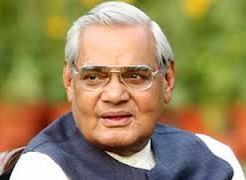 सन् 1980 में गठित भारतीय जनता पार्टी में हम लोगों के लिए ईस्टर सण्डे का विशेष महत्व है। 1980 में ईस्टर 6 अप्रैल के रविवार को पड़ा था जिस दिन नई दिल्ली में श्री अटल बिहारी वाजपेयी ने इसकी नींव रखी थी।
सन् 1980 में गठित भारतीय जनता पार्टी में हम लोगों के लिए ईस्टर सण्डे का विशेष महत्व है। 1980 में ईस्टर 6 अप्रैल के रविवार को पड़ा था जिस दिन नई दिल्ली में श्री अटल बिहारी वाजपेयी ने इसकी नींव रखी थी।
जून 1975 में इलाहाबाद उच्च न्यायालय ने समाजवादी पार्टी नेता श्री राजनारायण की याचिका पर निर्णय देते हुए श्रीमती गांधी के लोकसभाई निर्वाचन को रद्द कर दिया था। प्रधानमंत्री श्रीमती गांधी चुनावी कदाचार की दोषी पाई गई थीं और उन्हें अगले 6 वर्षों तक कोई भी चुनाव लड़ने के अयोग्य कर दिया गया था।
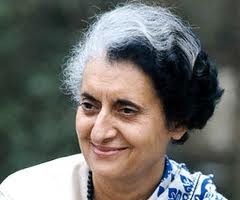 इस गंभीर घटनाक्रम के बाद कांग्रेस सरकार ने आंतरिक गड़बड़ियों की आड़ में देश पर आपातकाल थोप दिया था। संविधान प्रदत्त सभी मूलभूत अधिकारों को निलम्बित कर दिया गया, विपक्षी दलों के एक लाख से ज्यादा कार्यकर्ता जेलों में डाल दिए गए और मीडिया का ऐसा दमन किया गया जो ब्रिटिश शासन में भी नहीं हुआ था। आपातकाल लगभग 20 महीने तक रहा।
इस गंभीर घटनाक्रम के बाद कांग्रेस सरकार ने आंतरिक गड़बड़ियों की आड़ में देश पर आपातकाल थोप दिया था। संविधान प्रदत्त सभी मूलभूत अधिकारों को निलम्बित कर दिया गया, विपक्षी दलों के एक लाख से ज्यादा कार्यकर्ता जेलों में डाल दिए गए और मीडिया का ऐसा दमन किया गया जो ब्रिटिश शासन में भी नहीं हुआ था। आपातकाल लगभग 20 महीने तक रहा।
मार्च, 1977 में जब अगले लोकसभाई चुनाव हुए तो भारतीय मतदाताओं ने स्वतंत्रता के पश्चात् पहली बार कांग्रेस पार्टी को नई दिल्ली की सत्ता से उखाड़ फेंका। उस समय के कांग्रेस (ओ) के अध्यक्ष श्री मोरारजी भाई देसाई के नेतृत्व में जनता पार्टी की सरकार बनी।
यद्यपि सन् 1952 के बाद से हुए सभी संसदीय चुनावों में एक प्रचारक या फिर एक प्रत्याशी के रूप में मैंने भाग लिया है परन्तु निस्संकोच मैं कह सकता हूं कि 1977 के चुनाव देश के राजनीतिक इतिहास में सर्वाधिक महत्वपूर्ण रहे हैं। किसी अन्य अवसर पर चुनावों के नतीजों पर भारतीय लोकतंत्र इतना दांव पर नहीं लगा था जितना इन चुनावों में था। यदि कांग्रेस पार्टी यह चुनाव जीत जाती तो भारत के बहुदलीय लोकतंत्र को समाप्त करने के घृण्श्निात षड़यंत्र-आपातकाल- को जनता की वैधता मिल जाती! इसी प्रकार, किसी और अन्य चुनाव में भी भारतीय मतदाताओं के लोकतांत्रिक विवेक की यह बानगी नहीं मिलती। मतदाताओं ने कांग्रेस पार्टी को बुरी तरह से दण्डित किया। पंजाब, हरियाणा, हिमाचल प्रदेश, दिल्ली, उत्तर प्रदेश और बिहार जैसे अनेक प्रदेशों में कांग्रेस को एक सीट भी नहीं मिली।
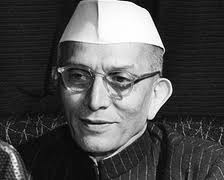 मोरारजी भाई सरकार ज्यादा नहीं चल पाई। अंदरूनी उठापठक के चलते 1979 में यह गिर गई। अगले लोकसभाई चुनाव 1980 में सम्पन्न हुए। जनता पार्टी के हम लोगों को साफ लगता था कि हम बुरी तरह हारेंगे। परन्तु इस उठापठक ने वास्तव में जनता पार्टी की शोचनीय हालत कर दी। सन् 1977 में 298 सीटें जीतने वाली जनता पार्टी 1980 में मात्र 31 सीटों पर सिमट कर रह गई। इन 31 सांसदों में से जनसंघ की संख्या सन् 1977 में 93 की तुलना में 16 रह गई।
मोरारजी भाई सरकार ज्यादा नहीं चल पाई। अंदरूनी उठापठक के चलते 1979 में यह गिर गई। अगले लोकसभाई चुनाव 1980 में सम्पन्न हुए। जनता पार्टी के हम लोगों को साफ लगता था कि हम बुरी तरह हारेंगे। परन्तु इस उठापठक ने वास्तव में जनता पार्टी की शोचनीय हालत कर दी। सन् 1977 में 298 सीटें जीतने वाली जनता पार्टी 1980 में मात्र 31 सीटों पर सिमट कर रह गई। इन 31 सांसदों में से जनसंघ की संख्या सन् 1977 में 93 की तुलना में 16 रह गई।
1980 के चुनावों के शीघ्र पश्चात् जनता पार्टी की कार्यकारिणी की बैठक बुलाई गई जिसमें यह तय हुआ कि पार्टी की संगठनात्मक वृध्दि पर ज्यादा ध्यान दिया जाए। पार्टी कार्यकारिणी ने जनता पार्टी का सदस्यता अभियान चलाने का भी फैसला किया ताकि निर्धारित कार्यक्रम के मुताबिक पार्टी के चुनाव कराए जा सकें।
मैं मानता हूं कि इसी निर्णय ने पार्टी के कुछ वर्गों को आशंकित कर दिया जिसे बाद में दोहरी सदस्यता विरोधी अभियान के रूप में जाना गया। यह अभियान जनसंघ के पूर्व सदस्यों के विरूध्द था जिनके बारे में आरोप लगाया गया कि वे केवल जनता पार्टी के सदस्य नहीं हैं अपितु राष्ट्रीय स्वयंसेवक संघ के भी सदस्य हैं। यह सभी को विदित था कि राष्ट्रीय स्वयंसेवक संघ एक राजनीतिक दल नहीं है। यह ऐसा था कि किसी कांग्रेसी जो आर्यसमाजी भी है, पर दोहरी सदस्यता का आरोप लगाया जाए! शीघ्र ही यह कानाफूसी अभियान शुरू हो गया कि यदि पूर्व जनसंघियों को राष्ट्रीय स्वंयसेवक संघ से सम्बन्ध रखने दिया गया तो मुस्लिम मतदाता पार्टी से विलग हो जाएंगे।
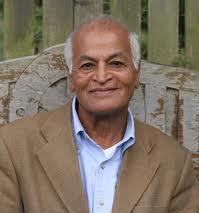 दोहरी सदस्यता के मुद्दे पर हुए तीखे विवाद पर एक सही परामर्श प्रख्यात गांधीवादी और स्वतंत्रता-सेनानी अच्युत पटवर्धन ने दिया। उन्होंने 9 जून, 1979 को ‘इंडियन एक्सप्रेस‘ में ‘जनता, आर.एस.एस. ऐंड द नेशन‘ शीर्षक वाले लेख में लिखा-‘आपाताकल के विरूध्द जन-संघर्ष में महान् योगदान की क्षमता के कारण भारतीय जनसंघ को जनता पार्टी के प्रमुख घटक के रूप में शामिल किया गया था। आपातकाल की समाप्ति के बाद से अब तक जनसंघ और या संघ ने ऐसा क्या क्या किया, जिसने श्री मधु लिमये और श्री राजनारायण तथा उनके समर्थकों को इन्हें बदनाम करने का एक उग्र अभियान छेड़ने के लिए प्रेरित किया?
दोहरी सदस्यता के मुद्दे पर हुए तीखे विवाद पर एक सही परामर्श प्रख्यात गांधीवादी और स्वतंत्रता-सेनानी अच्युत पटवर्धन ने दिया। उन्होंने 9 जून, 1979 को ‘इंडियन एक्सप्रेस‘ में ‘जनता, आर.एस.एस. ऐंड द नेशन‘ शीर्षक वाले लेख में लिखा-‘आपाताकल के विरूध्द जन-संघर्ष में महान् योगदान की क्षमता के कारण भारतीय जनसंघ को जनता पार्टी के प्रमुख घटक के रूप में शामिल किया गया था। आपातकाल की समाप्ति के बाद से अब तक जनसंघ और या संघ ने ऐसा क्या क्या किया, जिसने श्री मधु लिमये और श्री राजनारायण तथा उनके समर्थकों को इन्हें बदनाम करने का एक उग्र अभियान छेड़ने के लिए प्रेरित किया?
श्री वाजपेयी, श्री नानाजी देशमुख और मैंने इस दोहरी सदस्याता के अभियान का प्रखर विरोध किया। पार्टी की बैठकों में, मैंने कहा कि हमारे साथ पार्टी में ऐसा व्यवहार किया जा रहा है, जैसे मानों हम अस्पृश्य हों। मेंने आगे कहा:
‘जनता पार्टी के पांच घटक थे- कांग्रेस (ओ), भारतीय लोकदल, सोशलिस्ट पार्टी, सी.एफ.डी. और जनसंघ। राजनीतिक दृष्टि से कहें तो इनमें से पहले चार द्विज थे, जबकि जनसंघ की स्थिति हरिजन जैसी थी, जिसे परिवार में शामिल किया गया हो।
वर्ष 1977 में इसे पार्टी में स्वीकार करते समय काफी हर्षोल्लास था। पर समय बीतने के साथ परिवार में एक ‘हरिजन‘ की उपस्थिति ने समस्याएं शुरू कर दीं। ऐसा सोचने वाला मैं अकेला नहीं था बल्कि देश भर में पूर्ववर्ती जनसंघ के लाखों कार्यकर्ताओं और समर्थकों की गूंज इसमें शामिल थी। फरवरी-मार्च 1980 में जनसंघ के एक वरिष्ठ पदाधिकारी सुंदर सिंह भंडारी और मैंने देश भर का दौरा कर जमीनी स्तर पर जनता पार्टी के बारे में लोगों के विचार जानने के प्रयास किए। जहां भी हम गए, हमने पाया कि पूर्ववर्ती जनसंघ के कार्यकर्ताओं में इस बात को लेकर घोर आपत्ति थी कि पार्टी के भीतर उनके साथ दोयम दर्जे का व्यवहार क्यों किया जा रहा है।
जनता पार्टी के नेतृत्व ने दोहरी सदस्यता के मुद्दे पर अंतिम निर्णय करने के उद्देश्य से पार्टी की राष्ट्रीय कार्यकारिणी की 4 अप्रैल को बैठक बुलाई। इस बैठक से निकलने वाले नतीजों को भांप पर श्री वाजपेयी और नानाजी सहित हमने जनसंघ के पूर्व सदस्यों का एक सम्मेलन 5 और 6 अप्रैल, 1980 को बुलाया।
जैसाकि अपेक्षित था कि 4 अप्रैल को जनता पार्टी की कार्यकारिणी ने पूर्व जनसंघ के सभी सदस्यों को निष्कासित करने का फैसला लिया। अपनी आत्मकथा में मैंने उल्लेख किया है:
”जनसंघ के हम सभी सदस्यों को जनता पार्टी से निष्कासन का फैसला बड़ी राहत लेकर आया। 5 और 6 अप्रैल, 1980 के दो दिवसीय सम्मेलन ने स्फूर्तिदायक भावना और दृढ़ विश्वास जोड़ा।
दिल्ली के फिरोजशाह कोटला मैदान में 3,500 से अधिक प्रतिनिधि एकत्र हुए और 6 अप्रैल को एक नए राजनीतिक दल ‘भारतीय जनता पार्टी‘ (भाजपा) के गठन की घोषणा की गई। अटल बिहारी वाजपेयी को इसका पहला अध्यक्ष चुना गया। सिकंदर बख्त और सूरजभान के साथ मुझे महासचिव की जिम्मेदारी सौंपी गई।”
इस ब्लॉग की शुरूआत में मैंने ‘ईस्टर सण्डे‘ का संदर्भ दिया जिसे ईसाई दो दिन बाद पड़ने वाले गुडफ्राइडे को त्यौहार के रूप में मनाते हैं, माना जाता है कि इसी दिन यीशु पुनर्जीवित हुए थे। ईस्टर सण्डे को ईसा मसीह के पुनर्जीवित होने का दिन जाना जाता है।
हमारी पार्टी के सम्बन्ध में भी 1980 में गुड फ्राइडे के दिन जनता पार्टी के प्रस्ताव से हमें सूली पर चढ़ाया गया और ईस्टर सण्डे के दिन हम पुनर्जीवित हुए।
टेलपीस (पश्च्यलेख)
एक व्यक्ति स्वर्ग पहुंचा और पर्ली गेट्स पर सेंट पीटर से मिला। सेंट पीटर ने कहा आज अलग बात है , तुम्हारे सम्मुख स्वर्ग या नरक का विकल्प खुला है; हम तुम्हें दोनों में एक-एक दिन देंगे और तुम अपनी पसंद बताओगे। अत: व्यक्ति ने कहा ठीक है और उसे नरक भेज दिया।
वह नरक पहुंचा और जहां तक उसकी नजरें जा सकती थीं वहां तक हरियाली थी। उसने बीयर का एक बड़ा पीपा , एक गोल्फ कोर्स और अपने पुराने जिगरी दोस्त देखे। उसने गोल्फ का एक राऊण्ड खेला, पीना-पिलाना हुआ और अपने जिगरी दोस्तों के साथ मौज मस्ती की। उसे लगा यह ठीक है।
बाद में वह स्वर्ग गया। उसने पाया कि वहां शांति है , आप बादलों से दूसरे बादलों पर कूद सकते हो और बीन बजा सकते हो।
दिन बीतते ही सेंट पीटर उसके पास पहुंचे और उससे उसकी पसंद के बारे में पूछा: बगैर रूके उसने कहा: ”मैं नरक जाना पसंद करूंगा।”
वह तुरंत नरक गया लेकिन वहां उसे गंदगी और लावा के सिवाय कुछ नहीं मिला। बीयर का पीपा नदारद था , और उसके जिगरी दोस्त भी कहीं नहीं थे।
वह शैतान पर चिल्लाया कि क्या हुआ ? कल यह स्थान अद्भुत था। शैतान ने जवाब दिया, ”कल हम प्रचार अभियान चला रहे थे, आज आप ने वोट डाल दिया है।”
लालकृष्ण आडवाणी
नई दिल्ली
2 अप्रैल, 2013

April 1, 2013
BJP, AND EASTER SUNDAY
Last Sunday, March 31, 2013 was Easter Sunday, a very important Christian Festival. While all other Christian festivals, according to the Gregorian calendar, fall on a fixed day every year, Easter is a festival that takes place on different dates each year.
Next year for instance, Easter is to be celebrated on April 20, 2014.
 For us in the B.J.P. a party launched in 1980, Easter Sunday has a very special significance. In 1980, Easter Sunday fell on April 6th, the day on which the BJP was launched in New Delhi by Shri Atal Bihari Vajpayee.
For us in the B.J.P. a party launched in 1980, Easter Sunday has a very special significance. In 1980, Easter Sunday fell on April 6th, the day on which the BJP was launched in New Delhi by Shri Atal Bihari Vajpayee.
In June, 1975, the Allahabad High Court pronouncing verdict in an election petition filed by Socialist Party leader Shri Raj Narain struck down Smt. Gandhi’s election to the Lok Sabha. Prime Minister Smt. Gandhi was found guilty of electoral corruption, and barred from contesting any election for a period of six years.
 Following this grave development, the Congress Government imposed an Emergency in the country on the plea of internal disturbances. All fundamental rights under the Constitution were suspended, more than one lakh political activists of opposition parties were put behind bars and the media suppressed in a manner never done even under British Rule. The Emergency lasted for nearly 20 months.
Following this grave development, the Congress Government imposed an Emergency in the country on the plea of internal disturbances. All fundamental rights under the Constitution were suspended, more than one lakh political activists of opposition parties were put behind bars and the media suppressed in a manner never done even under British Rule. The Emergency lasted for nearly 20 months.
In March 1977, when the next Lok Sabha elections were held the Indian electorate for the first time since independence threw out the Congress Party from power in New Delhi. Shri Morarji Bhai Desai, the President of the Congress (O) at that point of time became the Prime Minister, leading a Janata Party Government.
Although I have participated in every Parliamentary election held since 1952 either as a campaigner, or as a candidate, I can unhesitatingly affirm that the 1977 elections have been the most crucial in the political history of the country. On no other occasion did the survival of Indian democracy depend so critically on the outcome of an election. If the Congress Party had won this election, the Emergency, which was a sinister bid to put an end to multi-party democracy in India would have earned popular legitimacy! Similarly, no other election has been a greater testimony to the innate democratic wisdom of the Indian electorate than this one. The electorate punished the Congress Party very severely. In several states like Punjab, Haryana, Himachal, Delhi, UP, and Bihar, the Party could not get a single Lok Sabha seat!
 The Morarji Bhai Government did not last long. Internal factional squabbles brought it to an end in 1979. The Lok Sabha elections were next held in 1980. It was clear to most of us in the Janata Party that we would lose badly. But the drubbing given to the Janata Party was really bad. From its strength of 298 in 1977, the Janata Party slumped to just 31 seats in 1980! In these 31 members, Jana Sangh’s own tally was a mere 16, compared to 93 in 1977.
The Morarji Bhai Government did not last long. Internal factional squabbles brought it to an end in 1979. The Lok Sabha elections were next held in 1980. It was clear to most of us in the Janata Party that we would lose badly. But the drubbing given to the Janata Party was really bad. From its strength of 298 in 1977, the Janata Party slumped to just 31 seats in 1980! In these 31 members, Jana Sangh’s own tally was a mere 16, compared to 93 in 1977.
Shortly after the 1980 elections, a meeting of the Janata Party Executive was convened where it was decided that more attention be paid to the organizational growth of the party. The executive also decided to launch a membership campaign of the Janata Party so that on the basis of a scheduled timetable party elections can be completed.
I believe that it is this decision that made some sections of the party initiate what later came to be known as the anti dual-membership campaign. The campaign was directed against former members of the Jana Sangh who it was alleged were members not only of the Janata Party but also of the RSS. It was known to every-one that RSS was not a political party. This was like accusing a Congressman who was also an Arya Samaji of being guilty of dual membership! Soon a whispering campaign began that if former Jana Sanghis were allowed to keep their association with the RSS the party would alienate Muslim voters.
 During the heated debate on the dual membership issue extremely sage counsel came from Achyut Patwardhan, a renowned Gandhian and freedom fighter. In an article titled ‘Janata, RSS and Nation’ published by the Indian Express. Patwardhan wrote:
During the heated debate on the dual membership issue extremely sage counsel came from Achyut Patwardhan, a renowned Gandhian and freedom fighter. In an article titled ‘Janata, RSS and Nation’ published by the Indian Express. Patwardhan wrote:
“It is on the strength and the contribution to the mass struggle against the emergency that the Bharatiya Jana Sangh was inducted into the Janata Party as its major constituent. What has the Jana Sangh and/or the RSS said or done from the time the emergency was lifted to date which has provoked Mr. Madhu Limaye, Raj Narain and their supporters to launch a rabid campaign of denigration”
Shri Vajpayee, Shri Nanaji Deshmukh and I took strong exception to this dual membership move. In the party meetings, I said that we were being shunned within the party as if we were untouchables. I added:
“The Janata Party had 5 constituents, the Congress (O), Lok Dal, Socialist Party, CFD of Babu Jagjiwan Ram, and the Jana Sangh. Of these, politically speaking, the first four were dvijas, the twice born, whereas Jana Sangh was kind of a harijan adopted into the family.
“On the occasion of the adoption in 1977, there was lot of rejoicing but as time passed, the presence of a Harijan in the family began to pose problems for all. I was not alone in my thinking. My observations echoed the feelings of lakhs of activists and supporters of the erstwhile Jana Sangh across the country. In February-March 1980, Shri Sunder Singh Bhandari and I traveled throughout the country to gauge the opinion at the grass root level of the party. Everywhere that we went we discovered deep resentment amongst former Jana Sangh activists that they were receiving treatment as second class members of the party.”
Janata Party leadership decided to convene a meeting of the party’s national executive on April 4 to clinch this issue of dual membership. Anticipating what would be the outcome of this meeting, along with Shri Vajpayee and Nanaji we all decided to convene a conference of former Jana Sangh members on April 5th and 6th, 1980.
As expected, on April 4th the Janata Party executive decided to expel all former Jana Sangh members from the party. In my autobiography I have recorded :
“Expulsion from the Janata Party came as a big relief to all of us in the Jana Sangh. The two day national convention on 5th, 6th April, 1980 added another invigorating emotion, that of determination”.
Over 3500 delegates assembled at Delhi Ferozeshah Kotla Ground and resolved on 6th April to form a new political organization called the Bharatiya Janata Party. Shri A.B. Vajpayee was elected its first President and Shri Sikander Bakht, Shri Suraj Bhan and I were entrusted the responsibility of General Secretaries.
I have opened this Blog with a reference to Easter Sunday which as everyone knows is the Christian festival which falls two days after Good Friday, the day on which Jesus Christ was believed to have been crucified. Easter Sunday is the day supposed to be the day of Christ’s resurrection.
In the case of our party also, in 1980, on Good Friday we were crucified by the Janata Party resolution and on Easter Sunday we were resurrected.
TAILPIECE
A man goes to heaven and meets St. Peter at the Pearly Gates. St. Peter says, today is different, you have a choice between heaven or hell; we will give you a day in each and you make the choice. So; the man says OK and they send him to hell.
He gets to hell and it’s green as far as the eye can see. He sees a huge keg of beer, a golf course and his old buddies. He plays a round of golf, drinks and hangs out with his buddies. He thinks this is great!
So then he goes to heaven. He gets there and its quiet, you can jump from cloud to cloud and play the harp.
At the end of the day St. Peter goes to him and asks what his choice is. Without pause, he says: “I’ll take hell over this any day”.
He immediately goes to hell but when he gets there, it’s nothing but dirt and lava. The beer keg is gone, and his buddies are nowhere to be found.
The man yells to the devil, what happened? This place was amazing yesterday. The devil replies, “Yesterday we were campaigning, today you voted”.
L.K. ADVANI
New Delhi
April 02, 2013

March 27, 2013
न्यायिक नियुक्तियों सम्बन्धी कॉलिजियम पध्दति की पुनरीक्षा की जरूरत
भारत को स्वतंत्र हुए 65 से ज्यादा वर्ष हो गए हैं। यदि कोई मुझसे पूछे कि साढ़े छ: दशकों की इस अवधि में देश की सर्वाधिक बड़ी उपलब्धि क्या रही है, तो निस्संकोच मेरा जवाब होगा : लोकतंत्र।
हम गरीबी, निरक्षरता और कुपोषण पर विजय नहीं पा सके हैं। लेकिन पश्चिमी विद्वानों के प्रचंड निराशावाद के विपरीत 1947 के बाद से औपनिवेशिक दासता से मुक्त होने वाले देशों में विशेष रूप से भारत जीवंत और बहुदलीय लोकतंत्र बना हुआ है।
यह भी सत्य है कि 1975-77 के आपातकाल की अवधि के दो वर्ष का कालखण्ड एक काले धब्बे की तरह है, जब कानून का शासन, अभिव्यक्ति की स्वतंत्रता और लोकतंत्र की अन्य जरूरी विशेषताओं पर ग्रहण लग गया था।
मेरा मानना है कि 1975 में इलाहाबाद उच्च न्यायालय के निर्णय जिसने न केवल प्रधानमंत्री श्रीमती गांधी के चुनाव को अवैध करार दिया था अपितु उनके 6 वर्षों तक कोई भी चुनाव लड़ने पर रोक लगाई थी, की आड़ में सत्ता में बैठे लोगों ने हमारे संविधान निर्माताओं द्वारा प्रदत्त लोकतंत्र को ही समाप्त करने का गंभीर प्रयास किया।
पं. नेहरू द्वारा शुरू किये गये नई दिल्ली से प्रकाशित दैनिक समाचार-पत्र नेशनल हेराल्ड ने तंजानिया जैसे अफ्रीकी देशों में लागू एकदलीय प्रणाली की प्रशंसा करते हुए एक सम्पादकीय लिखा:
जरूरी नहीं कि वेस्टमिनिस्टर मॉडल सबसे उत्तम मॉडल हो और कई अफ्रीकी देशों ने इस बात का प्रदर्शन कर दिया है कि लोकतंत्र का बाहरी स्वरूप कुछ भी हो, जनता की आवाज का महत्व बना रहेगा। एक मजबूत केन्द्र की आवश्यकता पर जोर देकर प्रधानमंत्री ने भारतीय लोकतंत्र की शक्ति की ओर संकेत किया है। एक कमजोर केंद्र होने से देश की एकता, अखंडता और स्वतंत्रता की रक्षा को खतरा पहुंच सकता है। उन्होंने एक अत्यंत महत्वपूर्ण प्रश्न उठाया है : यदि देश की स्वतंत्रता कायम नहीं रह सकती तो लोकतंत्र कैसे कायम रह सकता है?
दो सदियों के ब्रिटिश राज में भी अभिव्यक्ति के अधिकार को इतनी निर्ममता से नहीं कुचला गया जितना कि 1975-77 के आपातकाल के दौरान। 1,10,806 लोगों को जेलों में ठूंस दिया गया, जिनमें 253 पत्रकार थे।
इस सबके बावजूद यदि लोकतंत्र जीवित है तो इसका श्रेय मुख्य रूप से मैं दो कारणों को दूंगा: पहला, न्यायपालिका; और दूसरा मतदाताओं को जिन्होंने 1977 में कांग्रेस पार्टी को इतनी कठोरता से दण्डित किया कि कोई भी सरकार आपातकाल के प्रावधान का दुरूपयोग करने की हिम्मत नहीं कर पाएगी जैसा कि 1975 में किया गया।
सभी प्रमुख राजनीतिक नेताओं, सांसदों इत्यादि को आपातकाल में मीसा-आंतरिक सुरक्षा बनाए रखने वाले कानून-के तहत बंदी बना लिया गया था। इनमें जयप्रकाश नारायण के अलावा पूर्व प्रधानमंत्री मोरारजी देसाई, चन्द्रशेखरजी और अटल बिहारी वाजपेयी जैसे नेता भी थे। कुल मिलाकर मीसाबंदियों की संख्या 34,988 थी। कानून के तहत मीसाबंदियों को कोई राहत नहीं मिल सकती थी।
सभी मीसाबंदियों ने अपने-अपने राज्यों के उच्च न्यायालयों में बंदी प्रत्यक्षीकरण याचिका दायर की हुई थी। सभी स्थानों पर सरकार ने एक सी आपत्ति उठाई: आपातकाल में सभी मौलिक अधिकार निलम्बित हैं और इसलिए किसी बंदी को बंदी प्रत्यक्षीकरण याचिका दायर करने का अधिकार नहीं है। लगभग सभी उच्च न्यायालयों ने सरकारी आपत्ति को रद्द करते हुए याचिकाकर्ताओं के पक्ष में निर्णय दिए। सरकार ने इसके विरोध में न केवल सर्वोच्च न्यायालय में अपील की अपितु उसने इन याचिकाओं की अनुमति देने वाले न्यायाधीशों को दण्डित भी किया। अपने बंदीकाल के दौरान मैं जो डायरी लिखता था उसमें मैंने 19 न्यायाधीशों के नाम दर्ज किए हैं जिनको एक उच्च न्यायालय से दूसरे उच्च न्यायालय में इसलिए स्थानांतरित किया गया कि उन्होंने सरकार के खिलाफ निर्णय दिया था!
16 दिसम्बर, 1975 की मेरी डायरी के अनुसार:
सर्वोच्च न्यायालय मीसाबन्दियों के पक्ष में दिये गये उच्च न्यायालय के फैसलों के विरूध्द भारत सरकार की अपील सुनवाई कर रहा है। इसमें हमारा केस (चार सांसद जो एक संसदीय समिति की बैठक हेतु बंगलौर गए थे लेकिन उन्हें वहां बंदी बना लिया गया) भी है। न्यायमूर्ति खन्ना ने निरेन डे से पूछा कि : संविधान की धारा 21 में केवल व्यक्तिगत स्वतंत्रता नहीं बल्कि जिंदा रहने के अधिकार का भी उल्लेख है। क्या महान्यायवादी का यह भी अभिमत है कि चूंकि इस धारा को निलंबित कर दिया गया है और यह न्यायसंगत नहीं है, इसलिए यदि कोई व्यक्ति मार डाला जाता है तो भी इसका कोई संवैधानिक इलाज नहीं है? निरेन डे ने उत्तर दिया कि : ”मेरा विवेक झकझोरता है, पर कानूनी स्थिति यही है।”
यहां यह विशेष उल्लेखनीय है कि सर्वोच्च न्यायालय के अधिकांश न्यायाधीशों ने बाद में स्वीकारा कि उक्त कुख्यात केस में फैसला गलत था। इनमें से कई ने सार्वजनिक रूप् से अपने विचारों को प्रकट किया।
सन् 2011 में, सर्वोच्च न्यायालय ने औपचारिक रुप से घोषित किया कि सन् 1976 में इस अदालत की संवैधानिक पीठ द्वारा अतिरिक्त जिला मजिस्ट्रेट जबलपुर बनाम शिवकांत शुक्ला केस में दिया गया निर्णय ”त्रुटिपूर्ण‘ था, चूंकि बहुमत निर्णय ”इस देश में बहुसंख्यक लोगों के मूलभूत अधिकारों का उल्लंघन करता है,” और यह कि न्यायमूर्ति खन्ना का असहमति वाला निर्णय देश का कानून बन गया है।
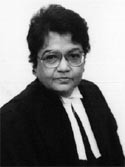 इन दिनों देश में सर्वाधिक चर्चा का विषय भ्रष्टाचार है। एक समय था जब भ्रष्टाचार की बात कार्यपालिका-राजनीतिज्ञों और नौकरशाहों के संदर्भ में की जाती थी। कोई भी न्यायपालिका में भ्रष्टाचार की बात नहीं करता था, विशेषकर उच्च न्यायपालिका के बारे में तो नही ही।
इन दिनों देश में सर्वाधिक चर्चा का विषय भ्रष्टाचार है। एक समय था जब भ्रष्टाचार की बात कार्यपालिका-राजनीतिज्ञों और नौकरशाहों के संदर्भ में की जाती थी। कोई भी न्यायपालिका में भ्रष्टाचार की बात नहीं करता था, विशेषकर उच्च न्यायपालिका के बारे में तो नही ही।
परन्तु हाल ही के वर्षों में इसमें बदलाव आया है। सर्वोच्च न्यायालय की एक पूर्व न्यायाधीश रूमा पाल ने नवम्बर, 2011 में तारकुण्डे स्मृति व्याख्यानमाला में बोलते हुए ”न्यायाधीशों के सात घातक पापों” को गिनाया। इनमें भ्रष्टाचार भी एक था।
अपने भाषण में उन्होंने कहा कि यह मानना कि आजकल न्यायपालिका में भ्रष्टाचार है, भी ”न्यायपालिका की स्वतंत्रता की विश्वसनीयता के लिए उतना ही हानिकारक है जितना कि भ्रष्टाचार।”
मैं अक्सर इस पर आश्चर्य व्यक्त करता हूं कि यदि जून 1975 जैसी स्थिति आज देखने को मिले तो न्यायपालिका की प्रतिक्रिया कैसी होगी। क्या उच्च न्यायालयों के कम से कम 19 न्यायाधीश मीसाबंदियों के पक्ष में निर्णय कर कार्यपालिका की नाराजगी मोल लेने का साहस जुटा पाएंगे? सचमुच में मुझे संदेह है।
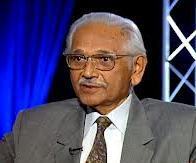 कालान्तर में, चयनित न्यायाधीशों के स्तर के सम्बन्ध में काफी बदलाव आया है जब रूमा पाल ने न्यायाधीशों के सात पापों के बारे में बोला तो, स्वयं एक सम्मानित न्यायविद् होने के नाते उन्होंने अपने भाषण में जानबूझकर यह चेतावनी जोड़ी कि वह ”सेवानिवृत्ति के बाद सुरक्षित” होकर बोल रही हैं।
कालान्तर में, चयनित न्यायाधीशों के स्तर के सम्बन्ध में काफी बदलाव आया है जब रूमा पाल ने न्यायाधीशों के सात पापों के बारे में बोला तो, स्वयं एक सम्मानित न्यायविद् होने के नाते उन्होंने अपने भाषण में जानबूझकर यह चेतावनी जोड़ी कि वह ”सेवानिवृत्ति के बाद सुरक्षित” होकर बोल रही हैं।
वर्तमान में, न्यायिक नियुक्तियों और न्यायाधीशों के तबादले - भारत के मुख्य न्यायाधीश और सर्वोच्च न्यायालय के चार वरिष्ठतम न्यायाधीशों की एक समिति जिसे ‘कॉलिजियम‘ कहा जाता है, द्वारा किए जाते हैं। इस कॉलिजियम प्रणाली की जड़ें तीन न्यायिक फैसलों (1993, 1994 और 1998) में निहित हैं। इनमें से पहला और दूसरा निर्णय भारत के मुख्य न्यायाधीश रहे न्यायमूर्ति जे.एस. वर्मा ने दिया। फ्रंटलाइन पत्रिका (10 अक्तूबर, 2008) को दिए गए एक साक्षात्कार में उन्होंने कहा ”सन् 1993 का मेरा निर्णय जिसका हवाला दिया जाता है को बहुत ज्यादा गलत समझा गया, दुरूपयोग किया गया। यह उस संदर्भ में कहा गया कि कुछ समय से निर्णयों की कार्यपध्दति के बारे में जो गंभीर प्रश्न उठ रहे हैं उन्हें गलत नहीं कहा जा सकता। इसलिए पुनर्विचार जैसा कुछ होना चाहिए।”
सन् 2008 में, विधि आयोग ने अपनी 214वीं रिपोर्ट में विभिन्न देशों की स्थितियों का विश्लेषण करते हुए कहा: ”अन्य सभी संविधानों में न्यायाधीशों की नियुक्ति में या तो कार्यपालिका एकमात्र प्राधिकरण्ा है या कार्यपालिका मुख्य न्यायाधीशों की सलाह से न्यायधीशों की नियुक्ति करती है। भारतीय संविधान दूसरी प्रणाली का अवलम्बन करता है। हालांकि, दूसरा निर्णय कार्यपालिका को पूर्णतया विलोपित अथवा बाहर करता है।”
‘फ्रंटलाइन‘ में प्रकाशित न्यायमूर्ति वर्मा के साक्षात्कार को उदृत करते हुए विधि आयोग लिखता है: ”भारतीय संविधान अनुच्छेद 124 (2) और 217(1) के तहत नियंत्रण और संतुलन की सुंदर पध्दति का प्रावधान करता है कि सर्वोच्च न्यायालयों और उच्च न्यायालयों के न्यायाधीशों की नियुक्ति में कार्यपालिका और न्यायपालिका की संतुलित भूमिका का उल्लेख है। यही समय है कि अधिकारों के संतुलन का वास्तविक स्वरुप पुर्नस्थापित किया जाए।”
हम, विश्व का सर्वाधिक बड़ा लोकतंत्र हैं जिसमें स्वाभाविक रुप से आशा की जाती है कि कम से कम उच्च न्यायिक पदों से जुड़ी नियुक्तियां पारदर्शी, निष्पक्ष और योग्यता आधारित पध्दति से हों। तारकुण्डे स्मृति व्याख्यानमाला में न्यायमूर्ति रुमा पाल ने टिप्पणी की कि ”सर्वोच्च न्यायालय में न्यायाधीशों की नियुक्ति की प्रक्रिया देश में सर्वाधिक रुप में गुप्त रखे जाने वाला विषय है।”
उन्होंने कहा कि ”इस प्रक्रिया की ‘रहस्यात्मकता‘ जिस छोटे से समूह से यह चयन किया जाता है और बरती जाने वाली ‘गुप्तता और गोपनीयता‘ सुनिश्चित करती है कि ‘अवसरों पर प्रक्रिया में गलत नियुक्तियां हो जाती हैं और इससे ज्यादा अपने आप को भाईभतीजावाद में फंसा देती हैं।”
वे कहती हैं कि एक अविवेकपूर्ण टिप्पणी या अनायास अफवाह ही पद के लिए किसी व्यक्ति की दृष्टव्य सुयोग्यता को बाहर कर सकती है। उनके अनुसार मित्रता और एहसान कभी-कभी अनुशंसाओं को सार्थक बना देते हैं।
लाल कृष्ण आडवाणी
नई दिल्ली
25 मार्च] 2013

March 24, 2013
THE COLLEGIUM SYSTEM OF JUDICIAL APPOINTMENTS NEEDS TO BE REVISITED
India has now been an independent country for over 65 years. If any one were to ask me as to what has been the country’s biggest achievement during this period of six and a half decades I would unhesitatingly say : Democracy.
We have not been able to overcome poverty, illiteracy and malnutrition. But notwithstanding the intense cynicism of western scholars, India is practically the only one among the developing countries liberated from colonial rule which has remained a vibrant, vigorous multi-party democracy all these years since 1947.
True, there has been a two-year exception – the Emergency period of 1975-1977, when the Rule of Law, Freedom of Expression and such other essential attributes of democracy came under eclipse.
I hold that in June 1975, following the Allahabad High Court judgement, which not only struck down Prime Minister Smt. Gandhi’s election to the Lok Sabha as invalid, but also barred her from contesting any election for six years, a sinister bid was made by those in power to see that democracy as conceived by our constitution makers was brought to an end.
The National Herald the daily paper from New Delhi started by Pandit Nehru wrote an editorial praising the one party system in African states like Tanzania, and wrote:
The Westminster model need not be the best model, and some African states have demonstrated how the people’s voice will prevail whatever be the outward structure of democracy. By stressing the need for a strong Centre, the PM has pointed out the strength of Indian democracy. A weak Centre threatens the country’s unity, integrity, and very survival of freedom. She has posed the most important question: If the country’s freedom does not survive, how can democracy survive?
Never ever in the two centuries of British rule was the right to freedom of expression so brutally suppressed as during the 1975-77 Emergency. As many as 1,10,806 persons were put behind bars; of these 253 were journalists.
If democracy has survived nevertheless, I would give credit mainly to two factors; firstly, the judiciary, and secondly, the electorate which in 1977 punished the Congress Party so severely that never again would any government ever dare to abuse the Emergency provisions as perversely as was done in 1975.
All prominent political leaders, MPs etc. were detained during the Emergency under a draconian law named MISA, that is, Maintenance of Internal Security Act. These included such distinguished leaders as Jaya Prakash Narayan, Morarji Desai, Chandra Shekharji and A.B. Vajpayee. In all, the number of MISA detenus was 34,988. The law laid down that no grounds were to be given to those arrested under MISA.
All MISA detenues filed Habeas Corpus petitions in their respective state High Courts. At all places, the government had raised the same objection: in an Emergency, all Fundamental Rights are suspended and so no detenu has a right to file a Habeas Corpus petition. Almost all the high courts rejected the government’s objection, and ruled in favour of the petitioners. The government not only went in appeal to the Supreme Court but actually punished the judges who had allowed the petitions. The diary I used to maintain while I was in prison records the names of nineteen judges who were transferred to other high courts because they had decided against the government!
My diary also records under the date 16 December 1975:
The Supreme Court has been hearing GOI’s appeal against the High Court Judgments in favour of MISA prisoners. This includes our case (that of four MPS who had gone to Bangalore for a Parliamentary Committee meeting but had been arrested there under MISA) also. Justice Khanna is reported to have pointed out to the Attorney General Niren De, that Article 21 of the Constitution deals with the right not only to personal liberty but also to life. Is it the stand of the Attorney General, he asked, that even if a person is killed he has no remedy because enforcement of this right also has been suspended? Niren De replied: ‘It weighs on my conscience. But that is the position in law’.
It is worth noting here that later on, most of the judges of the Supreme Court also admitted that the decision in that notorious case was wrong. Some of them publicly recanted their view.
In 2011, the Supreme Court formally declared that the majority opinion of the Constitution Bench of this court in Additional District Magistrate Jabalpur v/s Shivakant Shukla reported in 1976 was “erroneous”, that the majority judgement “violated the fundamental rights of a large number of people in this country”, and that it was Justice Khanna whose dissenting judgement had become the law of the land.
 These days the issue most discussed in the country is corruption. There was a time when all talk of corruption was related only to the executive – politicians and bureaucrats. No one talked of corruption in the judiciary, certainly not in the higher judiciary.
These days the issue most discussed in the country is corruption. There was a time when all talk of corruption was related only to the executive – politicians and bureaucrats. No one talked of corruption in the judiciary, certainly not in the higher judiciary.
Things have changed in recent years. Justice Ruma Pal herself a former Supreme Court judge, in her Tarkunde Memorial Lecture in November, 2011, spoke about “seven deadly sins” of judges. One of the seven sins mentioned was corruption.
In her lecture she said that the belief that there is nowadays corruption in the judiciary also is “as damaging for credibility in the independence of the judiciary as the act of corruption.”
Lately, a perceptible change has come about in the standards of judges selected. When Justice Ruma Pal spoke about the seven sins of Judges, she, a jurist reputed to be forthright in her articulation deliberately added a caveat to her pronouncement that she was speaking from the “safe haven of retirement.”
I often wonder how the judiciary would react today to a situation similar to that which arose in June, 1975. Would as many as nineteen judges of High Courts muster courage to invite the wrath of the Executive by deciding in favour of MISA detenus? I frankly doubt it.
 Presently, judicial appointments and transfer of judges are decided by a forum of the Chief Justice of India and the four senior-most judges of the Supreme Court which is popularly known as the Collegium. The Collegium system has its genesis in a series of three judgements (1993, 1994 and 1998). The first and second of these judgements were delivered by Justice J.S. Verma, Chief Justice of India. He himself in an interview to Frontline (Oct. 10, 2008 issue) has observed: “My 1993 judgement which holds the field, was very much misunderstood and misused. It was in that context that I said the working of the judgment now for some time is raising serious questions, which cannot be called unreasonable. Therefore some kind of rethink is required.”
Presently, judicial appointments and transfer of judges are decided by a forum of the Chief Justice of India and the four senior-most judges of the Supreme Court which is popularly known as the Collegium. The Collegium system has its genesis in a series of three judgements (1993, 1994 and 1998). The first and second of these judgements were delivered by Justice J.S. Verma, Chief Justice of India. He himself in an interview to Frontline (Oct. 10, 2008 issue) has observed: “My 1993 judgement which holds the field, was very much misunderstood and misused. It was in that context that I said the working of the judgment now for some time is raising serious questions, which cannot be called unreasonable. Therefore some kind of rethink is required.”
In 2008, the Law Commission, in its 214th report, analyzing the position in various countries said: “In all other constitutions either the Executive is the sole authority to appoint judges, or the Executive appoints judges in consultation with the Chief Justice. The Indian Constitution has followed the latter method. However, the second judges case has completely eliminated and excluded the Executive.”
Quoting Justice Verma’s interview to The Frontline, the Law Commission wrote: “The Indian Constitution provides a beautiful system of checks and balances under Articles 124 (2) and 217 (1) for the appointment of judges of the Supreme Court and the High Courts where both the Executive and the Judiciary have been given a balanced role. It is time the original balance of power is restored.”
We are the world’s largest democracy which naturally expects that in so far as appointments to high judicial offices are concerned there must be transparency, fairness and a merit based system. And yet, in her Tarkunde Memorial Lecture, Justice Ruma Pal remarked that “the process of appointment of judges to the superior courts was possibly the best kept secret of the country.”
The “mystique” of the process, the small base from which the selections were made and the “secrecy and confidentially” ensured that the “process may, on occasions, make wrong appointments and, worse still, lend itself to nepotism”, she said.
An indiscreet comment or a chance rumour was enough to rule out a person’s perceived suitability for the post, she said. Friendships and obligations also sometimes colour recommendations, she added.
L.K. Advani
New Delhi
25 March, 2013

March 18, 2013
अद्भुत लेखक: विचारप्रेरक पुस्तक
पिछले महीने मुझे ‘खुशवंतनामा : दि लेसन्स ऑफ माई लाइफ‘ की एक प्रति प्राप्त हुई। 188 पृष्ठों की इस पुस्तक को मैं लगभग एक बार में ही पढ़ गया। पुस्तक पढ़ने के पश्चात् मुझे पहला काम यह लगा कि मैंने अपने कार्यालय से खुशवंत सिंह से सम्पर्क करने को कहा ताकि पेंगइन विंकिंग द्वारा प्रकाशित इस शानदार पुस्तक के लिए मैं उनको बधाई दे सकूं।
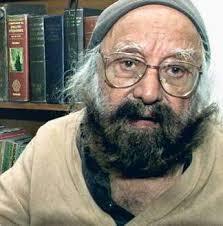 खुशवंत सिंह के घर पर फोन उठाने वाले व्यक्ति ने मेरे कार्यालय को सूचित किया कि वे फोन पर नहीं आ सकेंगे। एक संदेश यह दिया गया कि यदि आडवाणी खुशवंत सिंह ही को मिलना चाहते हैं तो शाम को आ सकते हैं। मैंने तुरंत उत्तर दिया कि आज शाम को मेरा अन्यत्र कार्यक्रम है लेकिन अगले दिन में निश्चित ही उनसे मिलने आऊंगा।
खुशवंत सिंह के घर पर फोन उठाने वाले व्यक्ति ने मेरे कार्यालय को सूचित किया कि वे फोन पर नहीं आ सकेंगे। एक संदेश यह दिया गया कि यदि आडवाणी खुशवंत सिंह ही को मिलना चाहते हैं तो शाम को आ सकते हैं। मैंने तुरंत उत्तर दिया कि आज शाम को मेरा अन्यत्र कार्यक्रम है लेकिन अगले दिन में निश्चित ही उनसे मिलने आऊंगा।
खुशवंत सिंह का जन्म 2 फरवरी, 1915 को हुआ। इसलिए जब फरवरी, 2013 में यह पुस्तक प्राप्त हुई तो मैं जानता था कि उन्होंने अपने जीवन के 98 वर्ष पूरे कर 99वें में प्रवेश किया है!
मैंने किसी और अन्य लेखक को नहीं पढ़ा जो सुबोधगम्यता के साथ-साथ इतना सुन्दर लिख सकता है, और वह भी इस उम्र में। इसलिए इस ब्लॉग के शीर्षक में मैंने न केवल पुस्तक अपितु लेखक की भी प्रशंसा की है।
पुस्तक की शुरुआत में शेक्सपियर की पंक्तियों को उदृत किया गया है:
दिस एवव ऑल, टू थाइन ऑन सेल्फ बी टू्र
एण्ड इट मस्ट फॉलो, एज दि नाइट दि डे,
थाऊ कांस्ट नॉट दैन बी फाल्स टू एनी मैन।
हेमलेट एक्ट-1, सीन III
(भावार्थ: जो व्यक्ति अपने बारे में ईमानदार होगा वही दूसरों के बारे में झूठा नहीं हो सकता।)
मैं यह अवश्य कहना चाहूंगा कि यह पुस्तक मन को हरने वाले प्रमाण का तथ्य है कि खुशवंत सिंह ने अपने बारे में लिखते समय भी उन्होंने असाधारण साफदिली के साथ लिखा है। उनके परिचय के पहले दो पैराग्राफ उदाहरण के लिए यहां प्रस्तुत हैं:
”परम्परागत हिन्दू मान्यता के अनुसार अब मैं जीवन के चौथे और अंतिम चरण संन्यास में हूं। मैं कहीं एकांत में ध्यान लगा रहा होऊंगा, मैंने इस दुनिया की सभी चीजों से लगाव और अनुराग छोड़ दिया होगा। गुरु नानक के अनुसार, नब्बे की आयु में पहुंचने वाला व्यक्ति कमजोरी महसूस करने लगता है, इस कमजोरी के कारणों को नहीं समझ पाता और निढाल सा पड़ा रहता है। अपने जीवन के इस मोड़ पर मैं अभी इनमें से किसी भी अवस्था में नहीं पहुंचा हूं।
अठानवें वर्ष में, मैं अपने को सौभाग्यशाली मानता हूं कि हर शाम को सात बजे मैं अभी भी माल्ट व्हिस्की के एक पैग का आनन्द लेता हूं। मैं स्वादिष्ट खाना चखता हूं, और ताजा गपशप तथा घोटालों के बारे में सुनने को उत्सुक रहता हूं। मुझसे मिलने आने वाले लोगों को मैं कहता हूं कि यदि किसी के बारे में आपके पास अच्छा कहने के लिए नहीं है, तो आओ और मेरे पास बैठो। मेरे आस-पास की दुनिया के बारे में जानने की उत्सुकता मैंने बनाए रखी है; मैं सुंदर महिलाओं के साथ का आनन्द लेता हूं; मैं कविताओं और साहित्य तथा प्रकृति को निहारने का आनंद उठाता हूं।”
प्रस्तावना के अलावा पुस्तक में सोलह अध्याय हैं। एक पूर्व पत्रकार होने के नाते यह तीन विशेष मुझे ज्यादा पसंद आए:
1- दि बिजनेस ऑफ राइटिंग
2- व्हाट इट टेक्स टू बी ए राइटर
3- जर्नलिज्म दैन एण्ड नाऊ
***
‘डीलिंग विथ डेथ‘ शीर्षक वाले अध्याय में लेखक लिखता है :
वास्तव में मृत्यु के बारे में, मैं जैन दर्शन में विश्वास करता हूं कि इसका जश्न मनाना चाहिए। सन् 1943 में जब मैं बीसवें वर्ष में था तभी मैंने अपनी स्वयं की श्रध्दांजलि लिखी थी। बाद में यह लघु कहानियों के मेरे संस्करण में ‘पास्चुमस‘ (मरणोपरांत) शीर्षक से प्रकाशित हुई थी। इसमें मैंने कल्पना की कि दि ट्रिब्यून ने अपने मुखपृष्ठ पर एक छोटे चित्र के साथ मेरी मृत्यु का समाचार प्रकाशित किया है। शीर्षक इस तरह पढ़ा जाएगा: ‘सरदार खुशवंत सिंह डेड; और आगे छोटे अक्षरों में प्रकाशित होगा: गत् शाम 6 बजे सरदार खुशवंत सिंह की अचानक मृत्यु की घोषणा करते हुए खेद है। वह अपने पीछे एक युवा विधवा, दो छोटे बच्चे और बड़ी संख्या में मित्रों और प्रशंसकों…. को छोड़ गए हैं। दिवगंत सरदार के निवास पर आने वालों में मुख्य न्यायाधीश के निजि सचिव, अनेक मंत्री और उच्च न्यायालय के न्यायाधीश थे।‘
पुस्तक के अंत में एक अध्याय ”ट्वेल्व टिप्स टू लिव लॉन्ग एण्ड बी हैप्पी” (लंबे और प्रसन्न जीवन के बारह टिप्स) शीर्षक से इसमें है। मेरी सुपुत्री प्रतिभा ने मुझे कहा: ”इस पुस्तक को पढ़े बगैर ऐसा लगता है कि खुशवंत सिंह द्वारा बताए गए टिप्स में से अधिकांश का आप पालन कर रहे हैं। इस पुस्तक में बताए गए टिप्स में से दो अत्यन्त मूल्यवान यह हैं: अपना संयम बनाए रखें, और झूठ न बोलें! और आप लगभग सहज भाव से दोनों का पालन करते हैं।”
पुस्तक का अंतिम अध्याय स्मृतिलेख (एपटैफ) है जोकि निम्न है:
जब मैं नहीं रहूंगा तब मुझे कैसे स्मरण किया जाएगा? मुझे एक ऐसे व्यक्ति के रुप में स्मरण किया जाएगा जो लोगों को हंसाता था। कुछ वर्ष पूर्व मैंने अपना ‘स्मृति लेख‘ लिखा था:
यहां एक ऐसा शख्श लेटा है जिसने न तो मनुष्य और न ही भगवान को बख्शा,
उसके लिए अपने आंसू व्यर्थ न करो, वह एक समस्या कारक व्यक्ति था,
शरारती लेखन को वह बड़ा आनन्द मानता था,
भगवान का शुक्रिया कि वह मर गया, एक बंदूक का बच्चा।
-खुशवंत सिंह
रविवार 3 मार्च, 2013 को मैं सरदार खुशवंत सिंह से मिलने नई दिल्ली स्थित उनके निवास स्थान सुजान सिंह पार्क (उनके दादा के नाम पर) गया। मैंने उन्हें इस पुस्तक को लिखने पर हार्दिक बधाई दी और उनका अभिनंदन किया। चाय पीते हुए उस स्थान पर एक घंटा आनन्द से गुजारा। मैं उनकी पुत्री माला से भी मिला जो साथ वाले फ्लैट में रहती हैं और उनकी अच्छे ढंग से देखभाल करती हैं।
टेलपीस (पश्च्यलेख)
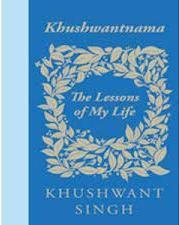 राष्ट्रपति जैल सिंह का उसी टेक्सन अस्पताल में ऑपरेशन हुआ जिसमें उनके पूर्ववर्ती संजीवा रेड्डी का हुआ था। जब उन्हें ऑपरेशन थियेटर में ले जाया गया तो मुख्य सर्जन ने राष्ट्रपति से पूछा: ‘आर यू रेडी?’ (क्या आप तैयार हो)।
राष्ट्रपति जैल सिंह का उसी टेक्सन अस्पताल में ऑपरेशन हुआ जिसमें उनके पूर्ववर्ती संजीवा रेड्डी का हुआ था। जब उन्हें ऑपरेशन थियेटर में ले जाया गया तो मुख्य सर्जन ने राष्ट्रपति से पूछा: ‘आर यू रेडी?’ (क्या आप तैयार हो)।
‘नो, ऑय एम नॉट, उन्होंने जवाब दिया ‘ऑय एम जैल सिंह।‘ (नहीं, मैं नहीं हूं। मैं जैल सिंह हूं)।
पुस्तक के ”ह्यूमर इज ए लैथिल वैपन” अध्याय से
लालकृष्ण आडवाणी
नई दिल्ली
18 मार्च, 2013

L.K. Advani's Blog
- L.K. Advani's profile
- 10 followers


